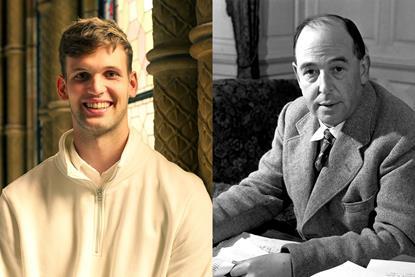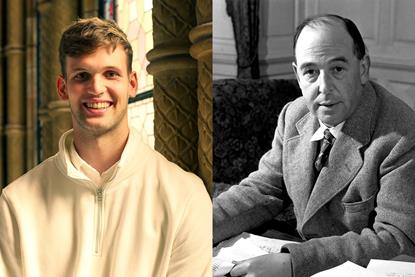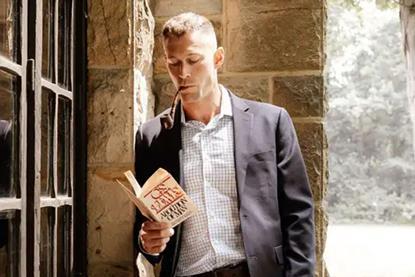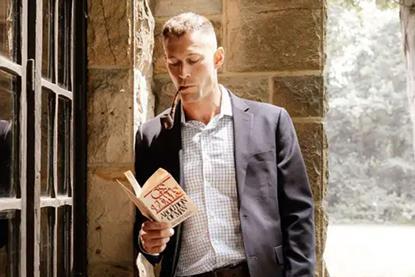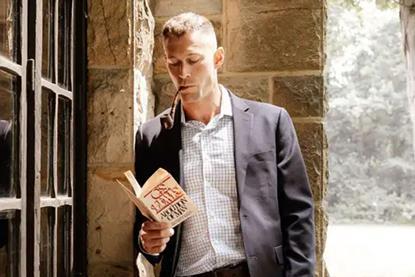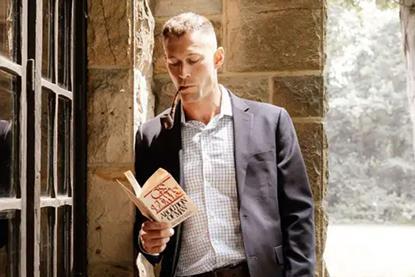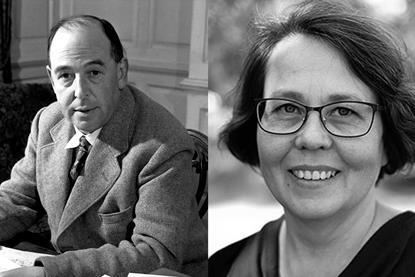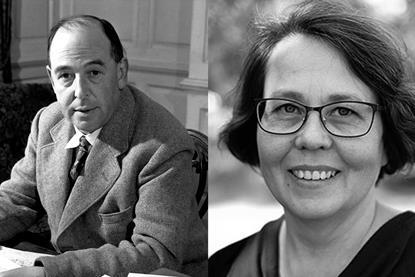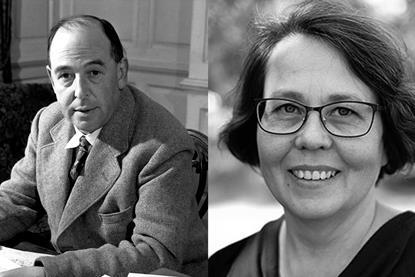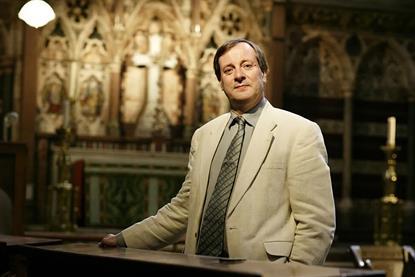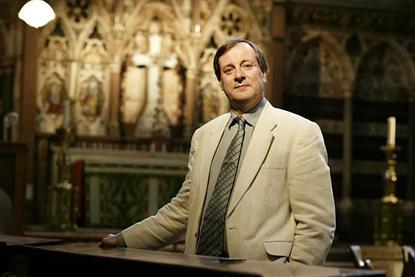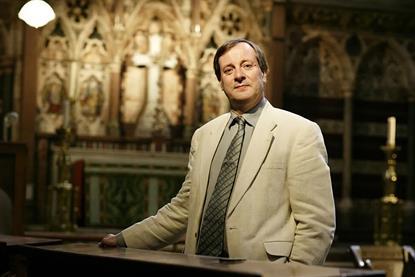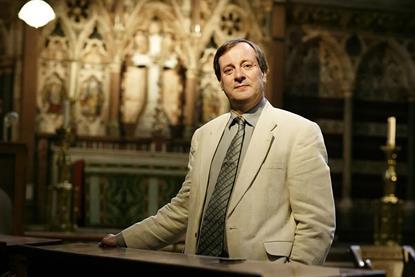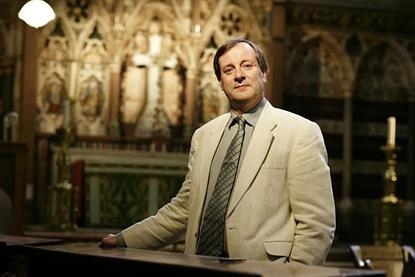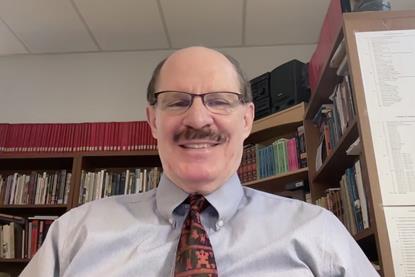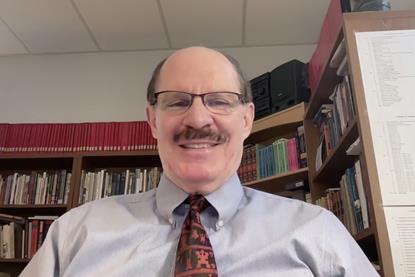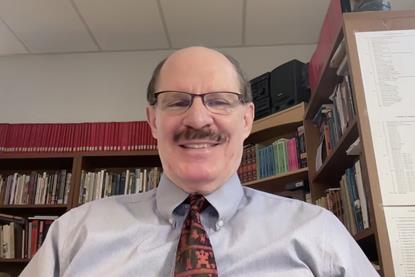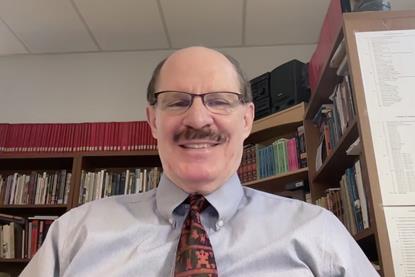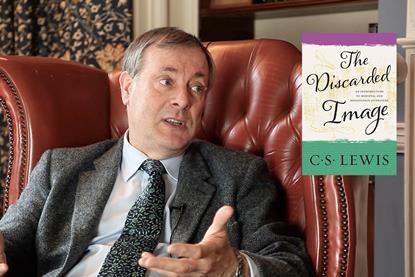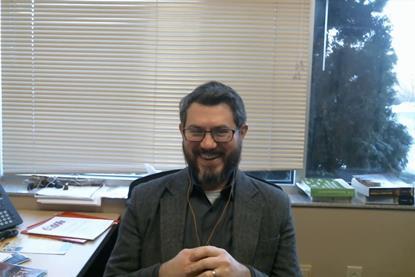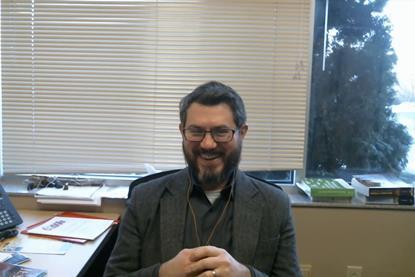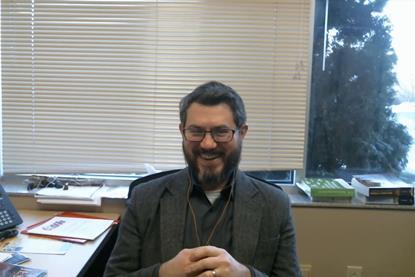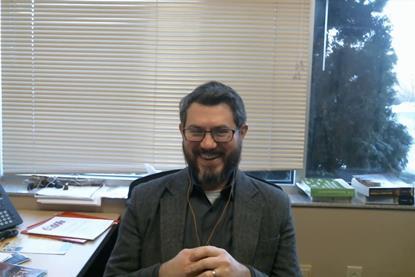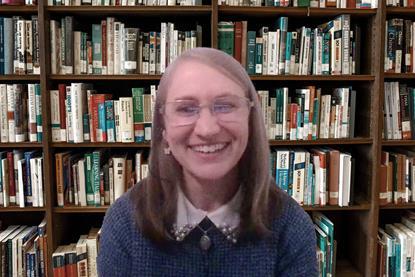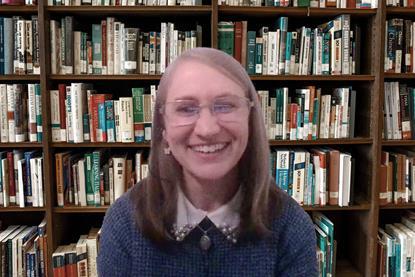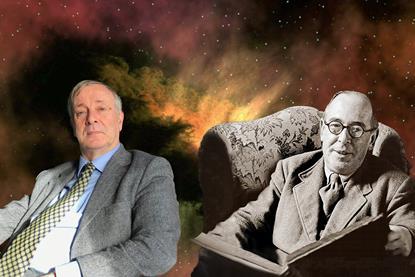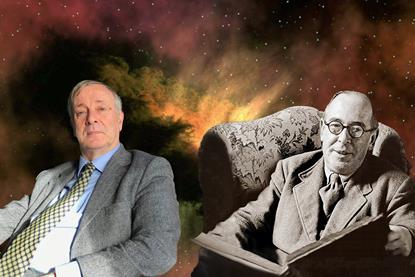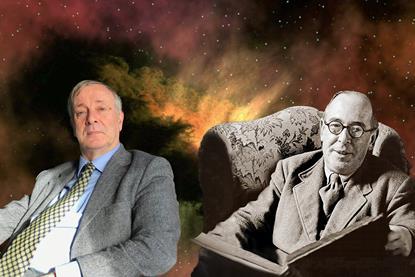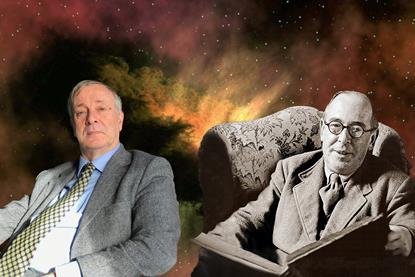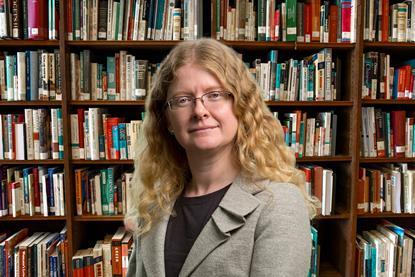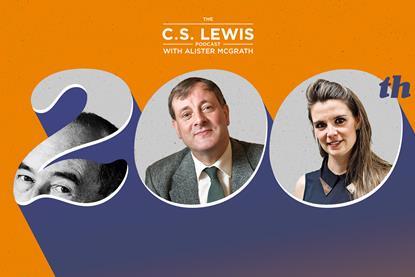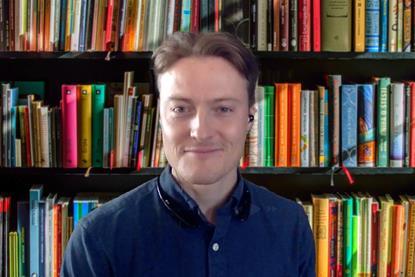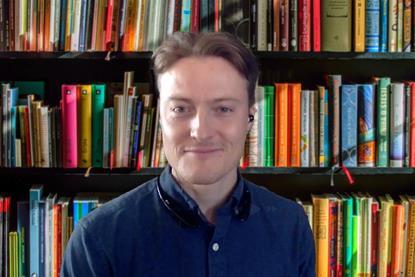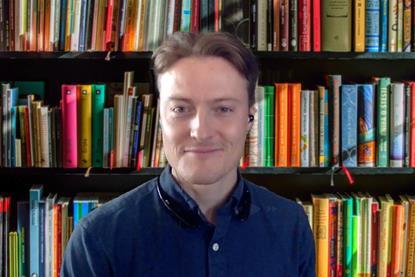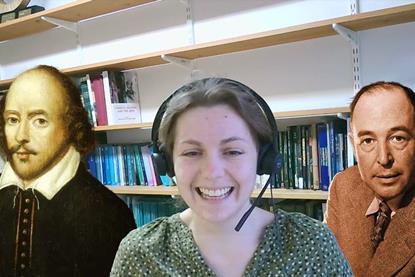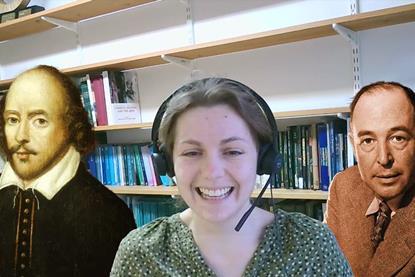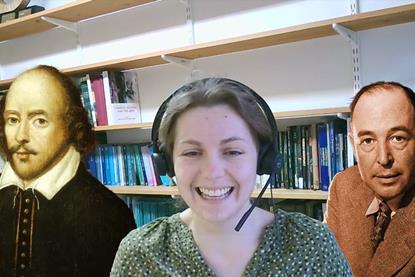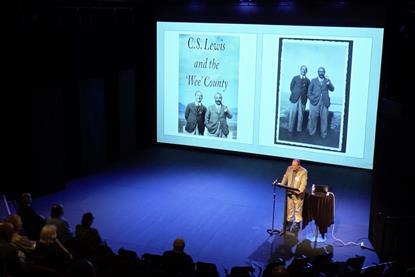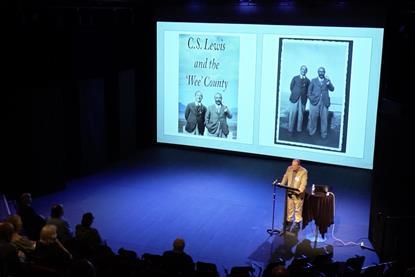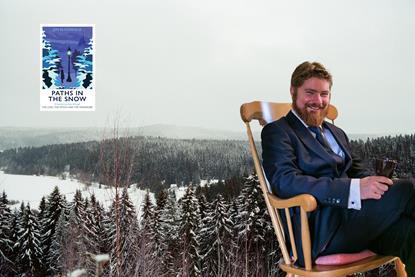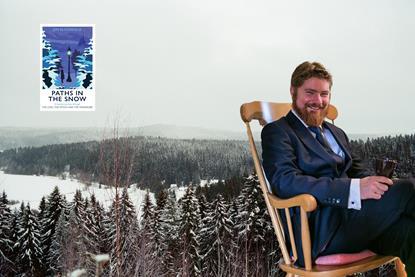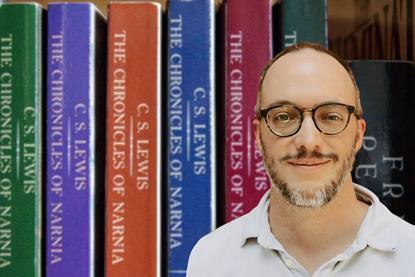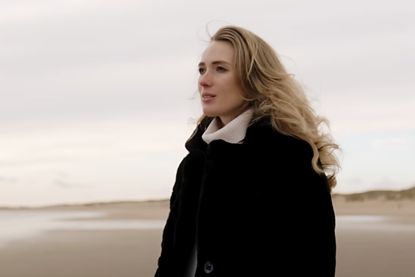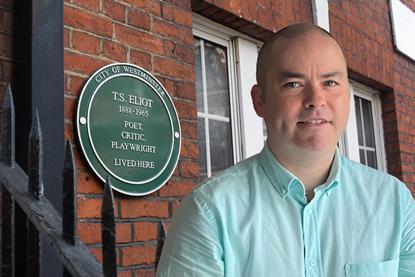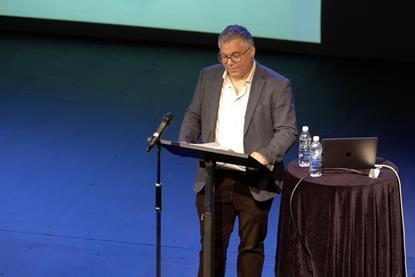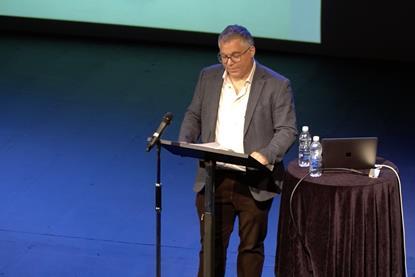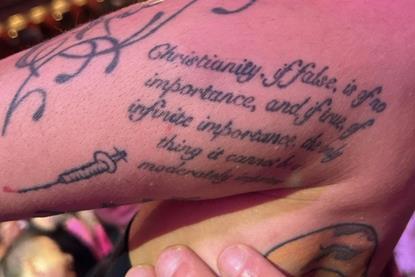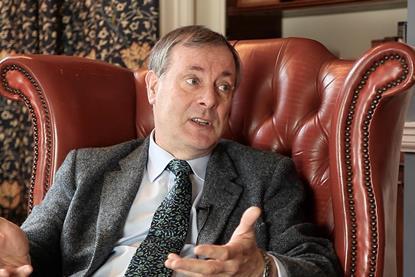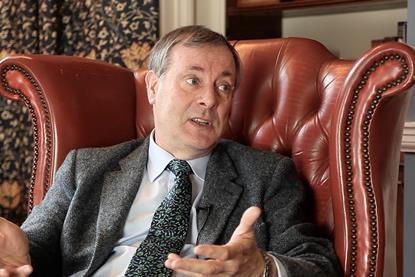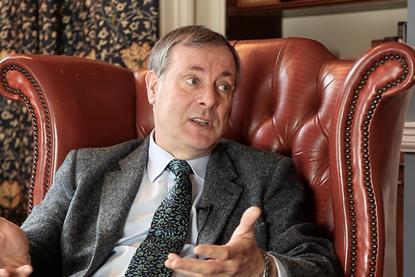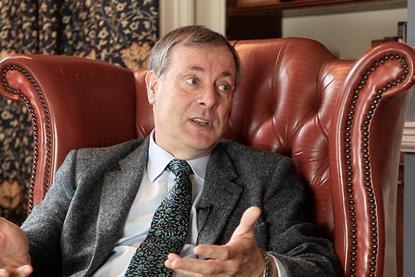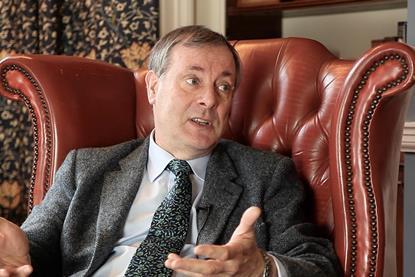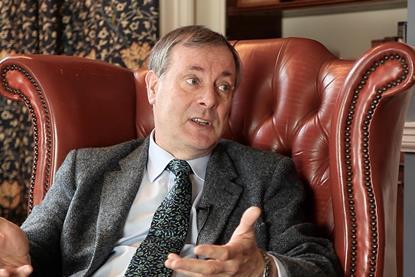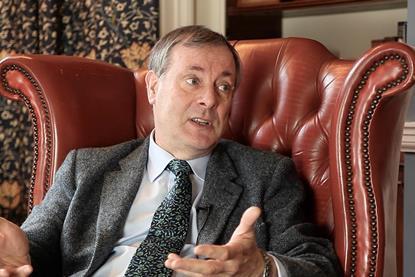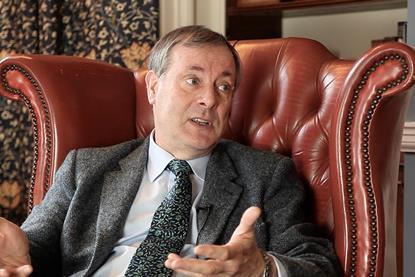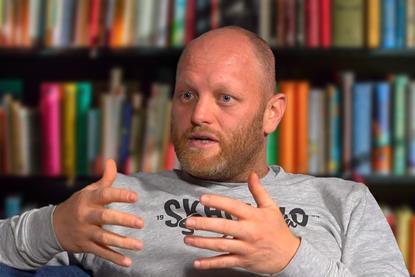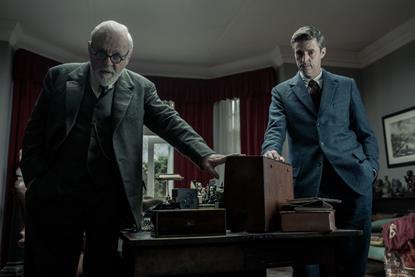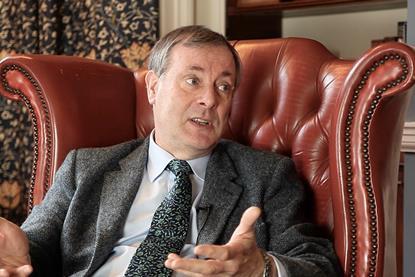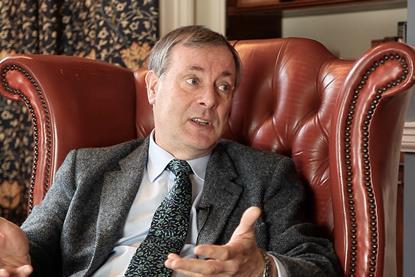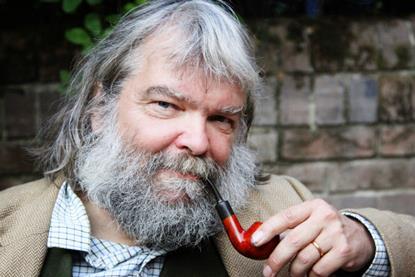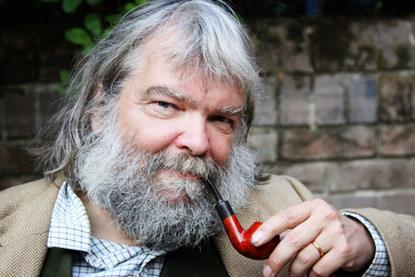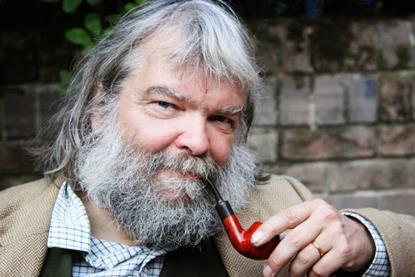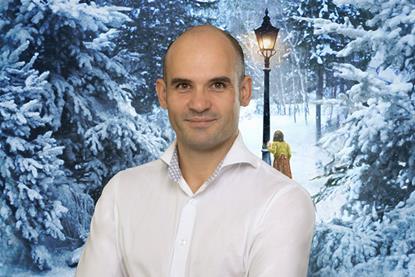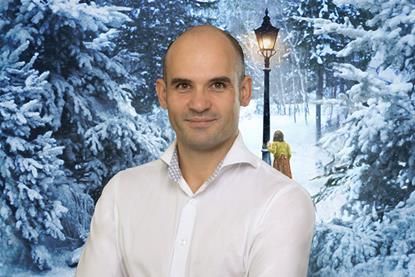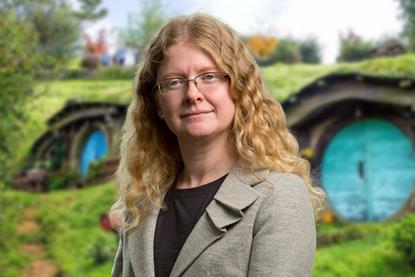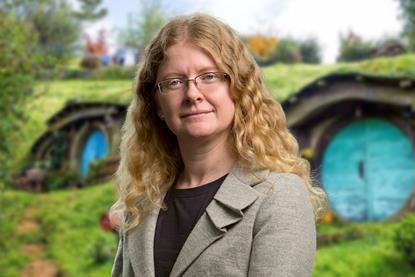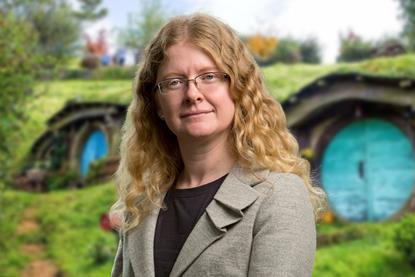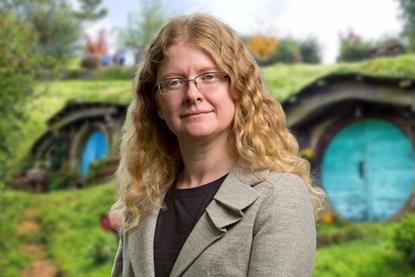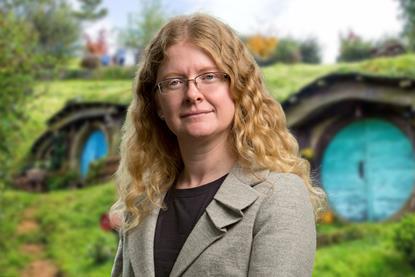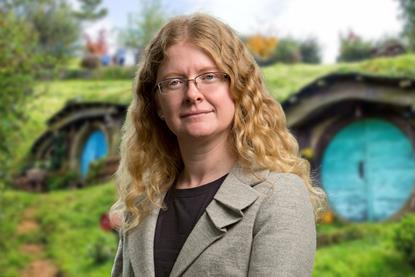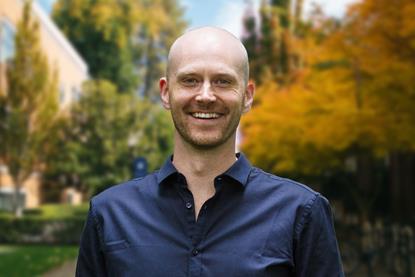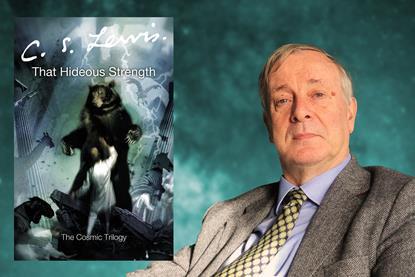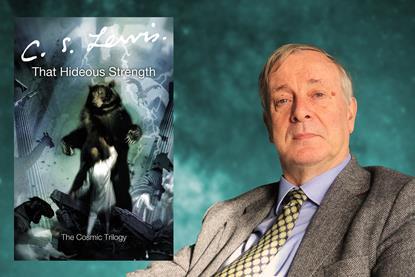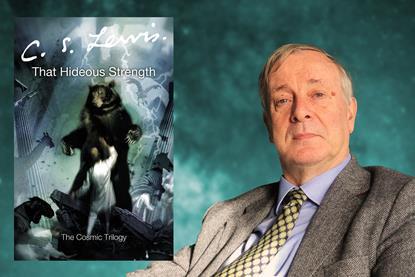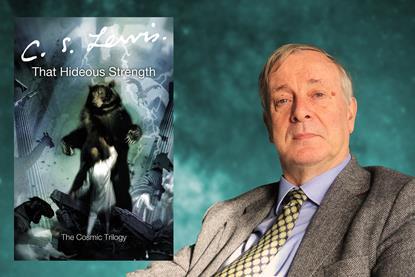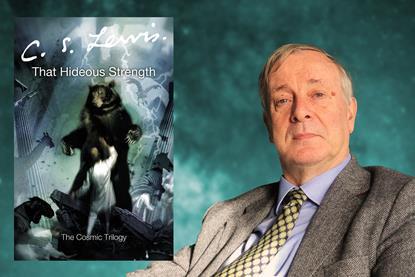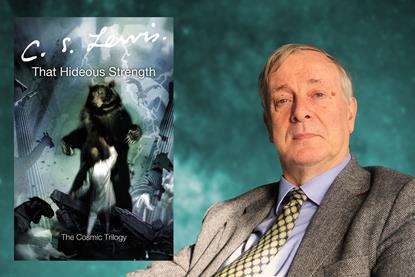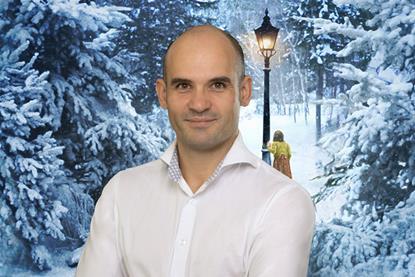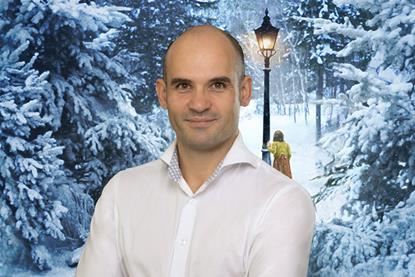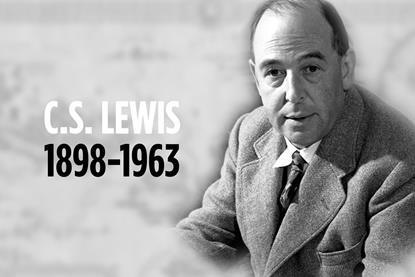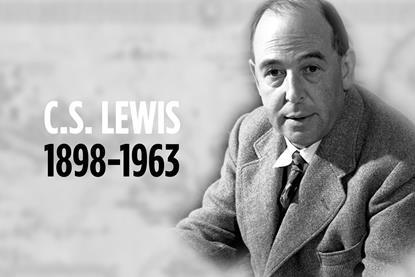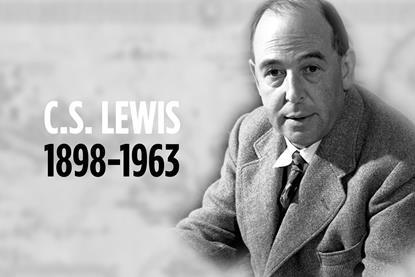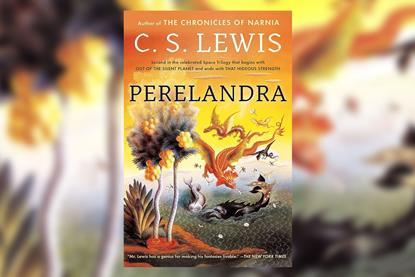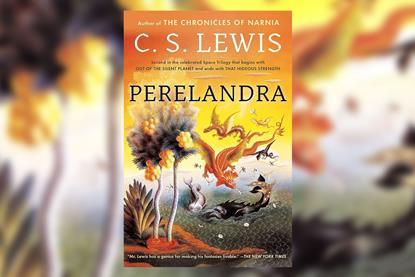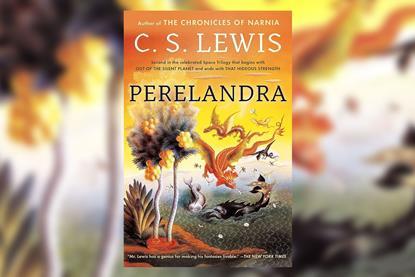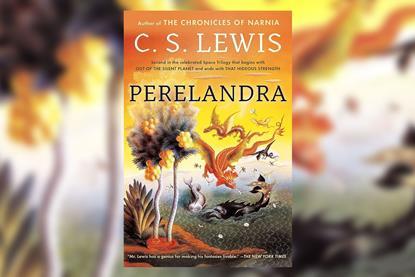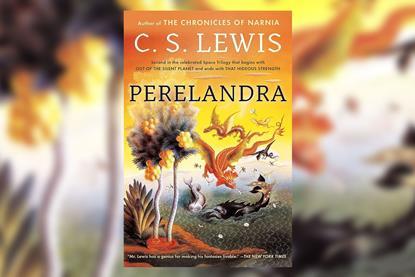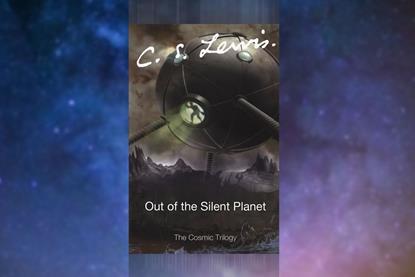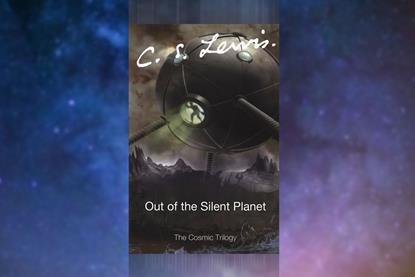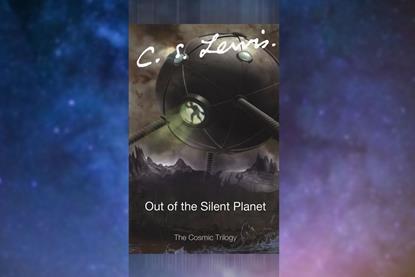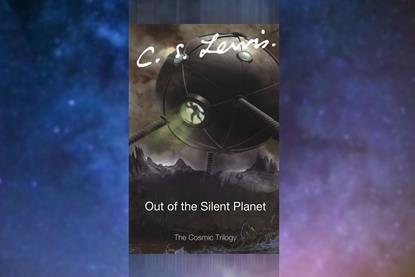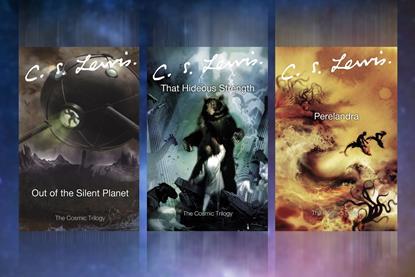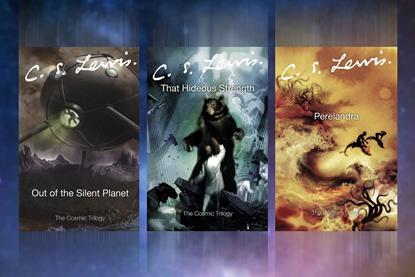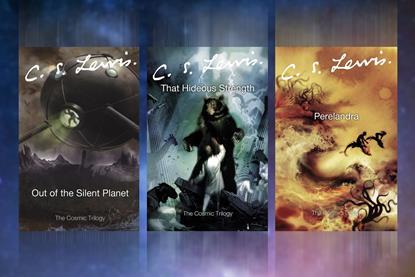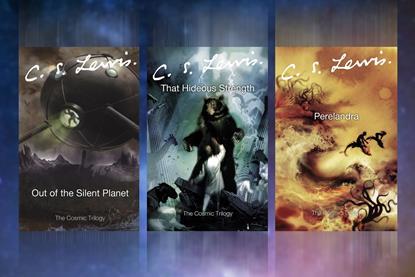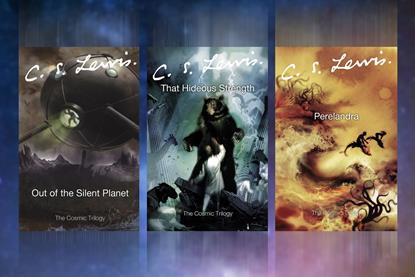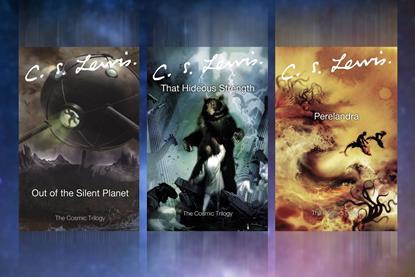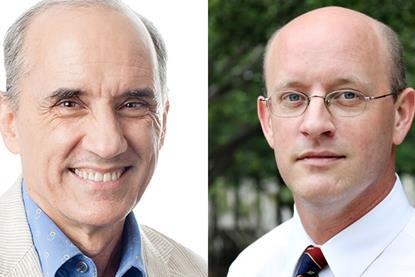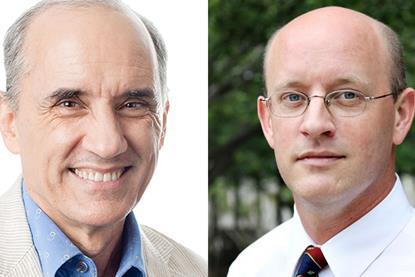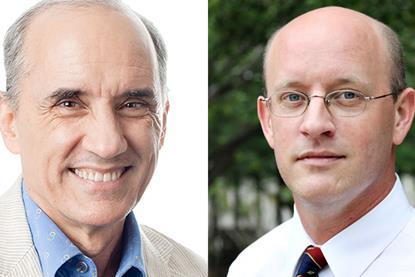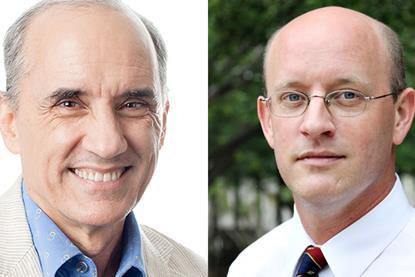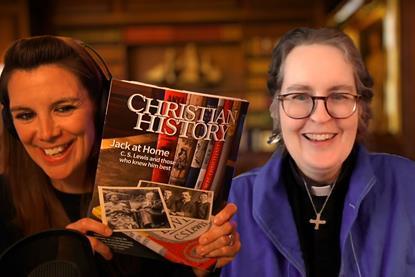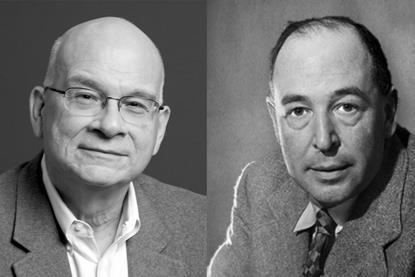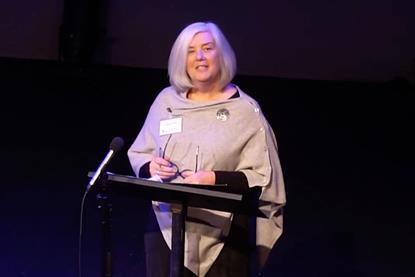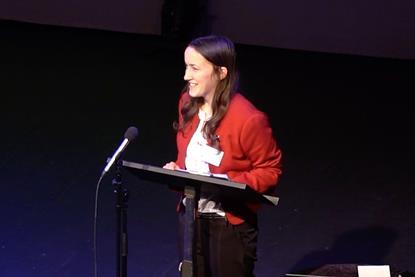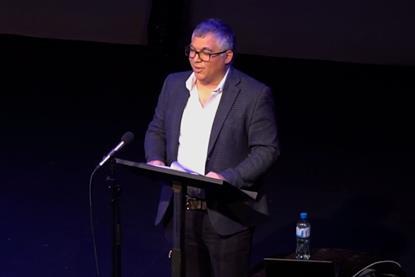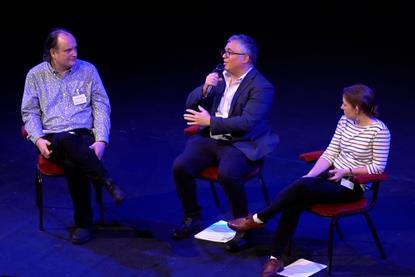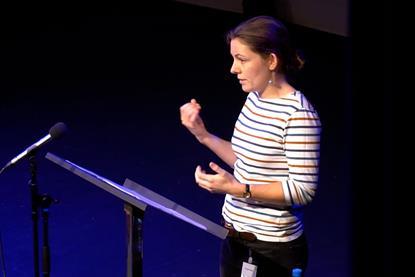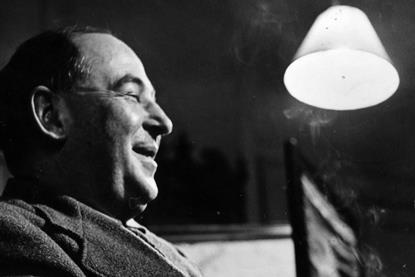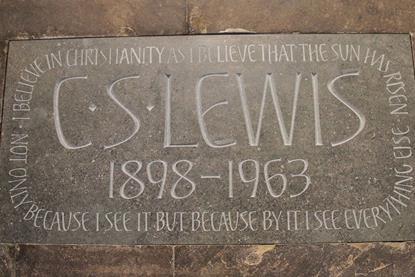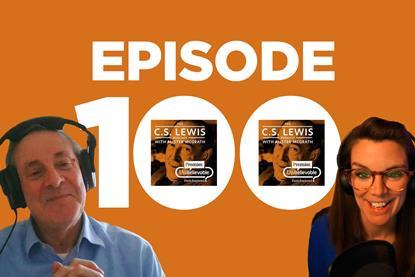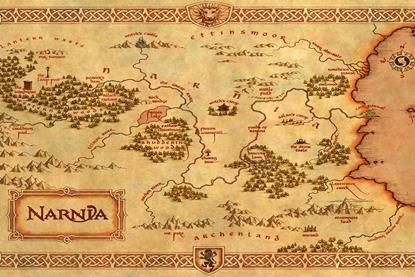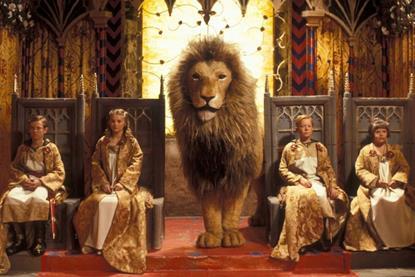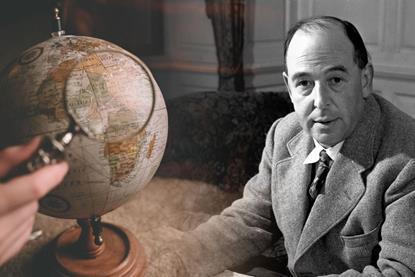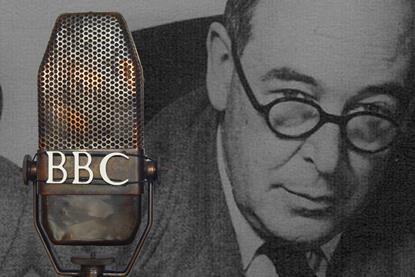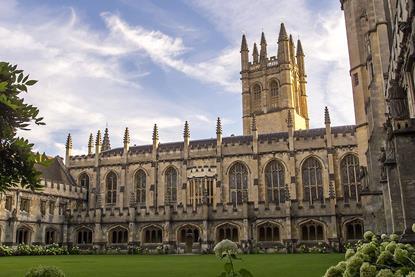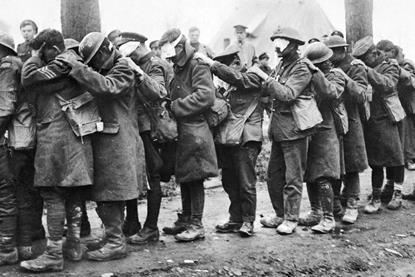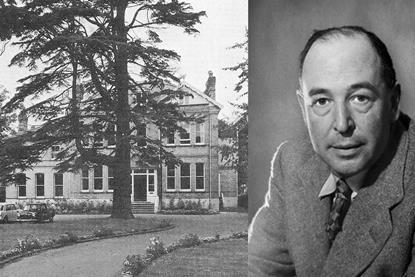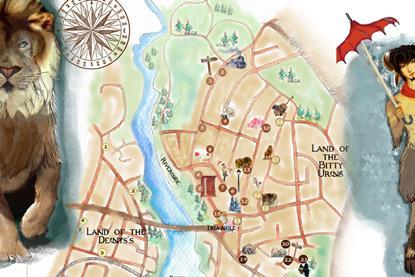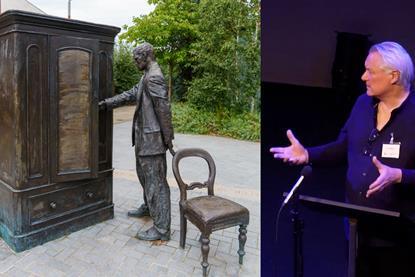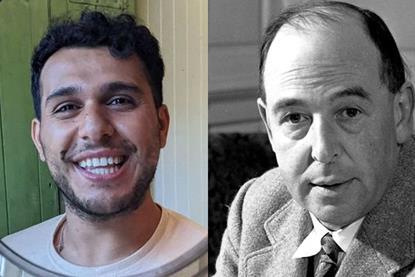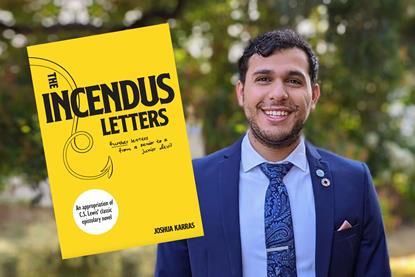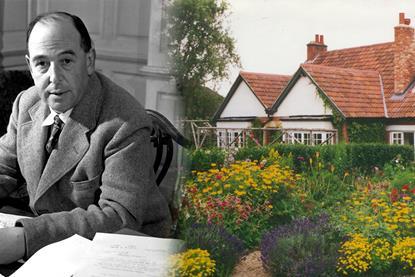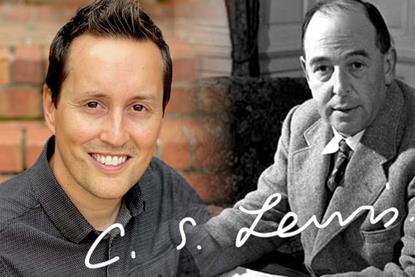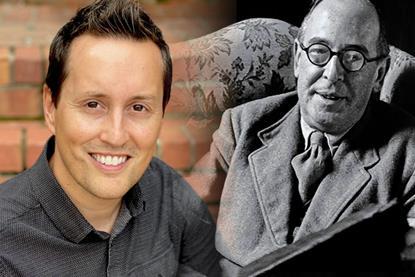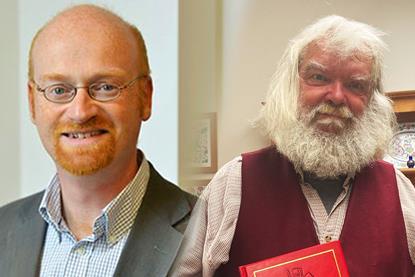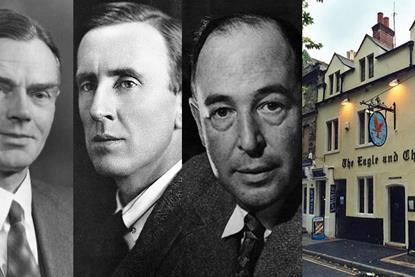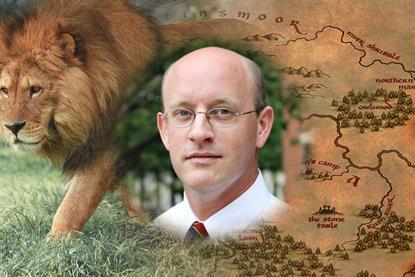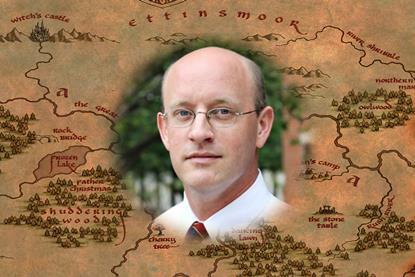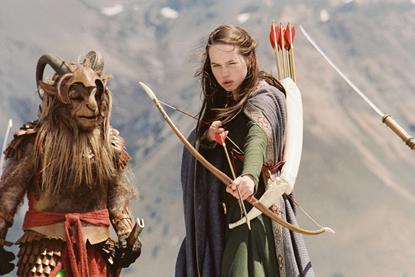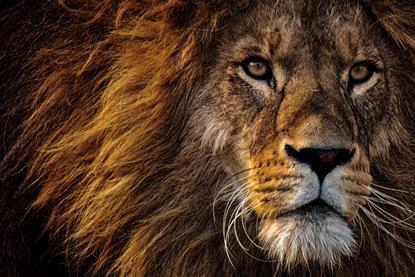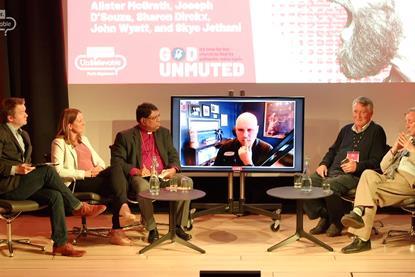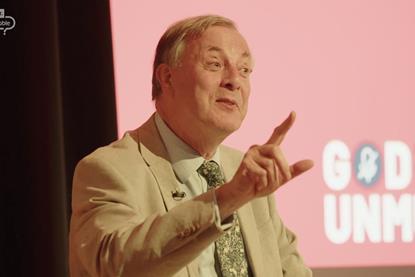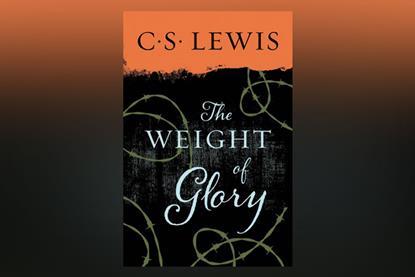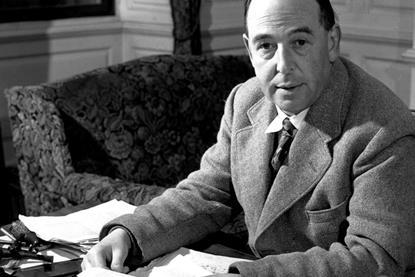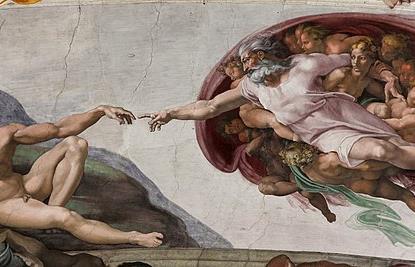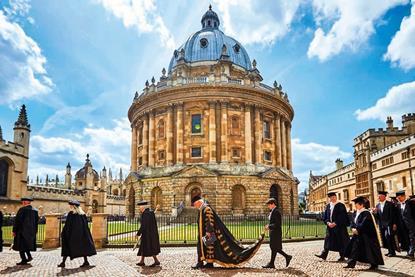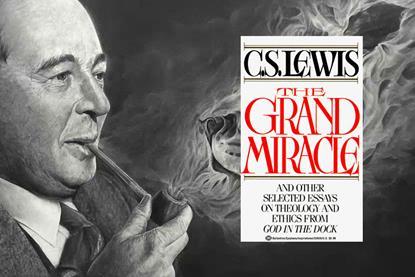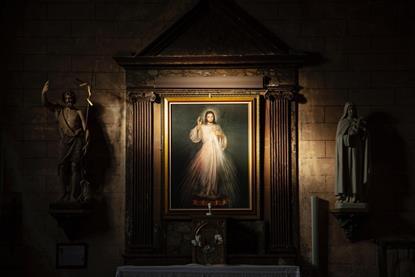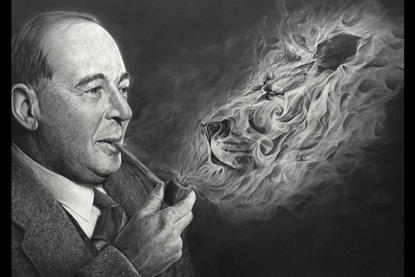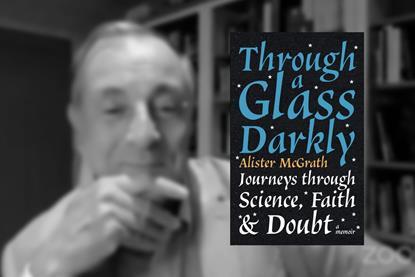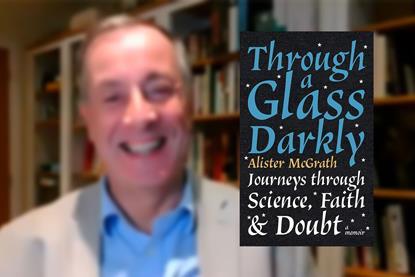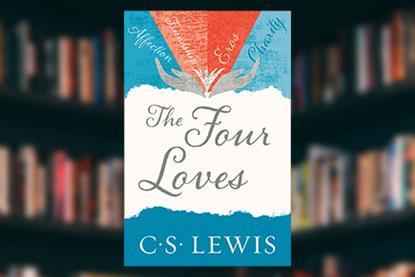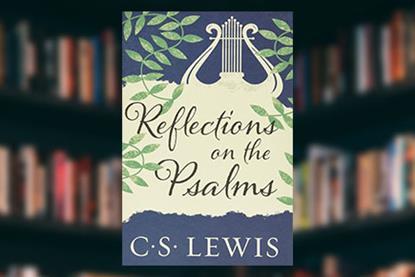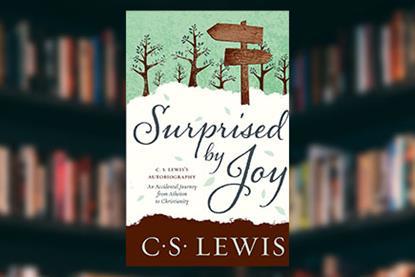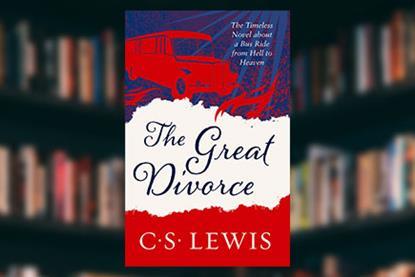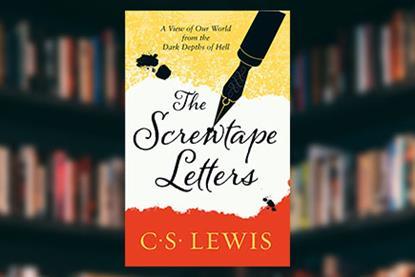The CS Lewis Podcast
A weekly podcast from Premier Unbelievable? with Professor Alister McGrath exploring C.S. Lewis’ thought, theology and teaching.
C.S. Lewis is one of the most influential voices in modern Christianity. The 20th Century British writer and lay theologian has profoundly impacted Christians around the world and brought many atheists and agnostics to faith in Jesus.
One person whose faith was greatly encouraged by the writings of C.S. Lewis is Professor Alister McGrath. Both men were raised in Northern Ireland, studied at Oxford University and went on to become professors there. They also both came to faith from atheism slightly later in life. Alister has written numerous books on C.S. Lewis, including a seminal biography C.S. Lewis – A Life.
Every Monday, Professor Alister McGrath will reflect on C.S. Lewis’ ideas, life and influence as well as trying to answer questions that impact culture today.
The CS Lewis Podcast
#248 Ruth Jackson: Why CS Lewis Might Be Exactly What a Post-Truth World Needs
In this special edition of the CS Lewis Podcast, we’re sharing a conversation first recorded for the Lesser Known Lewis podcast, kindly made available for our listeners.
#247 Ruth Jackson: “Christian Apologetics” on the Lesser Known Lewis podcast
This is a special episode taken from the Lesser Known Lewis podcast, a podcast which focuses on CS Lewis’ essays and short works, which Ruth Jackson was a guest on in 2024. She discusses CS Lewis’ speech ‘Christian Apologetics’ and provides insight into her background with Lewis.
#246 Dr Crystal Hurd: Lighting the Corner You’re In: CS Lewis and Everyday Leadership
Dr Crystal Hurd and host Ruth Jackson explore what leadership looks like through the lens of CS Lewis, not as power or prominence, but as quiet faithfulness in everyday life. Crystal reflects on Lewis’ conviction that most leadership happens far from the spotlight: in homes, classrooms, churches, and communities, where ordinary people shape others through character, humility, and care.
#245 Dr Crystal Hurd: Compassion, resilience, and creative leadership in Lewis
Dr Crystal Hurd,discusses CS Lewis as a model of compassionate, resilient, and creative leadership. Together, Ruth and Crystal explore how Lewis demonstrated compassion in his life and work, how he responded to suffering and criticism with resilience, and the ways he inspired others both in his own time and today.
#244 Dr Crystal Hurd: How CS Lewis became one of the most influential leaders of the modern age
Dr Crystal Hurd explores why CS Lewis remains such a compelling and influential figure today. The conversation ranges across humility, moral vision, courage, intellect, and duty, showing how Lewis translated timeless wisdom into stories and ideas that still resonate.
#243 Dr Crystal Hurd: Exploring the Transformational Leadership of CS Lewis
Dr Crystal Hurd, an educator, poet, and researcher from Virginia, shares about her extensive work on CS Lewis. Dr Hurd discusses her first encounter with Lewis’ writings and how it transformed her faith and worldview.
#242 Charlie Reeder: “The Hidden Country” - Longing and Sehnsucht in CS Lewis’ Earliest Poetry
In this episode of The CS Lewis Podcast, Ruth Jackson introduces a special conference paper by Charlie Reeder, recorded at the 2024 Undiscovered CS Lewis Conference at George Fox University. Charlie explores Spirits in Bondage, Lewis’ little-known first published work, written while he was still an atheist, and argues that it holds the key to understanding Lewis’s lifelong theme of longing.
#241 Charlie Reeder: Longing for the Hidden Country: CS Lewis, Sehnsucht, and Spirits in Bondage
In this episode of The CS Lewis Podcast, Ruth Jackson is joined by Charlie Reeder, a recent Oxford graduate whose award-winning research explores the theme of longing in the work of CS Lewis.
#240 Stefan Knibbe: Lewis’s Shifting Views on Freedom, Suffering, and Hell in Till We Have Faces
Ruth Jackson is joined by theologian and Lewis scholar Stefan Knibbe to explore “revolutions” in CS Lewis’ thinking about freedom, suffering and hell.
#239 Stefan Knibbe: CS Lewis on Freedom, Suffering, and Hell
Stefan Knibbe joins to share how his studies led him to focus on the works of CS Lewis and how Lewis has shaped his thinking and faith. He speaks about his paper, “Freedom, Suffering, and Hell in Till We Have Faces: Lewis’ Shifting Views,” and why Lewis’ ideas on freedom shifted over time.
#238 Joseph Weigel: A paper on Dr. Dimble’s Neutrals
Ruth Jackson is joined by Joseph Weigel, firefighter and podcast host, for the final episode of this series. Joseph gives insight into his paper, titled Dr. Dimble’s Neutrals, that he presented at the 2024 Undiscovered CS Lewis Conference. We then get to hear his paper live from the conference, which was held at Geroge Fox University.
#237 Joseph Weigel: CS Lewis, Dr Dimble, and the Mystery of the “Neutral” Beings
Ruth and Joseph explore Dr Dimble’s role in That Hideous Strength and his intriguing idea of “neutral” spiritual beings. They discuss how these neutrals draw on medieval thought, whether Lewis intended readers to take them seriously, and what this reveals about his wider views on the supernatural.
#236 Joseph Weigel: The fairytale of That Hideous Strength
Firefighter and podcaster Joseph Weigel joins Ruth Jackson to explore the “fairy tale for grown-ups” that is That Hideous Strength part of CS Lewis’s Space Trilogy.
#235 Joseph Weigel: A Firefighter on Faith, Courage, and The Abolition of Man
Ruth Jackson talks with firefighter and podcast host Joseph Weigel about CS Lewis’ The Abolition of Man and why its insights into truth, morality, and modern culture still matter today. They explore how Lewis’ ideas about courage, sacrifice, and integrity resonate in everyday life and ask whether these themes have any relevance to the challenges faced by first responders.
#234 Lilian Lindén: Did Lewis credit Barfield for what he learned from Steiner?
Ruth Jackson speaks with Lilian Lindén, who has a degree in philosophy of religion, about her paper from the 2024 Undiscovered CS Lewis Conference held at George Fox University. Her paper was titled Did Lewis credit Barfield for what he learned from Steiner?. We then get to hear her paper live from the conference.
#233 Lilian Lindén: CS Lewis, Owen Barfield, and the Great War
Ruth Jackson speaks with Lilian Lindén about CS Lewis’ early philosophical development and his long-running debate with his friend Owen Barfield, the so-called “Great War.” They unpack Lewis’s shift from realism to idealism, explore Barfield’s influence through anthroposophy, and consider how figures like Rudolf Steiner shaped their discussions.
#232 Lilian Lindén: The influence and relevance of CS Lewis today
Ruth Jackson speaks with Lilian Lindén, who has a degree in philosophy of religion, about how C.S. Lewis continues to shape faith and thought today. They discuss how she first encountered Lewis, the impact his writings have had on her life, and why his ideas remain so compelling more than 60 years after his death.
#231 Alister McGrath: CS Lewis, Christians and the Church
Ruth and Alister explore what those in Christian ministry learn from C.S. Lewis - the “very ordinary layman” who helped shape modern faith. Alister reflects on Lewis’ approach to prayer and spiritual growth, his vision for Mere Christianity and how his theology speaks to the challenges of living faithfully in a post-Christian culture.
#230 Alister McGrath: Theology, miracles and imagination
In today’s episode, Ruth Jackson is joined again by Professor Alister McGrath, to discuss theology in a multi-part series. They explore Lewis’ view on miracles, his belief on the importance of imagination, and how Lewis’ arguments stand up against the New Atheism movement.
#229 Alister McGrath: Reflecting on CS Lewis’ work as a theologian
In today’s episode, Ruth Jackson is joined again by Professor Alister McGrath, to discuss theology in a multi-part series. They reflect on Lewis’ work as a theologian, covering questions such as: What are some of the key theological topics Lewis unpacks in his work?
#228 Alister McGrath: Was CS Lewis a theologian? Part 2
In today’s episode, Ruth Jackson is joined again by Professor Alister McGrath, to discuss theology in a multi-part series. Why do people not consider Lewis a theologian? Who are some of the people who do take him seriously as a theologian, and has he become one in modern times? What can we learn from Lewis’ approach to theology?
The CS Lewis Podcast #227 Alister McGrath: Was CS Lewis a theologian?
In today’s episode, Ruth Jackson is joined again by Professor Alister McGrath, to discuss theology in a multi-part series. How do we define theology? What is Alister’s experience with it? Was Lewis considered a theologian by others, or even himself?
The CS Lewis Podcast #226 Paul Anderson: Fern-Seed, Elephants, Bultmann, and Lewis - Varied Expertise in Critical Perspective
We are joined again by Paul Anderson, a Professor of Biblical and Quaker Studies at George Fox University in Oregon, for the final episode in this series. In today’s episode, we get to hear his paper, which was titled Fern-Seed, Elephants, Bultmann, and Lewis - Varied Expertise in Critical Perspective, live from the 2024 Undiscovered CS Lewis conference.
The CS Lewis Podcast #225 Paul Anderson: CS Lewis, the Bible and theology
Paul Anderson, a Professor of Biblical and Quaker Studies at George Fox University in Oregon, is back to discuss C.S. Lewis’ approach to the Bible and theology.
The CS Lewis Podcast #224 Paul Anderson: Lewis, Bultmann, Fern-seeds and Elephants
Ruth Jackson is joined again by Dr Paul Anderson, Professor of Biblical and Quaker Studies at George Fox University. Together, Ruth and Paul explore Lewis’ classic essay Fern-seeds and Elephants, in which Lewis critiques biblical scholarship with his memorable “four bleats.”
The CS Lewis Podcast #223 Paul Anderson: CS Lewis and the Gospel of John
Ruth Jackson is joined with Paul Anderson, a Professor of Biblical and Quaker Studies at George Fox University in Oregon. Paul speaks on his first encounter with C.S. Lewis and the role Lewis’ works have played in his own life, ministry, and scholarship.
The CS Lewis Podcast #222 Dr. Max Baker-Hytch: Lewis and the argument from desire
Today we are joined by Dr. Max Baker-Hytch, a tutorial fellow in Philosophy at Oxford University, to discuss Lewis and the argument from desire. Covering topics such as whether our deepest longings point to the existence of another world, how naturalists might respond, and whether such desires could have evolutionary origins.
The CS Lewis Podcast #221 Dr. Max Baker-Hytch: Lewis and the argument from reason
Today we are joined by Dr. Max Baker-Hytch, a tutorial fellow in Philosophy at Oxford University, to discuss Lewis and Lewis’ argument from reason, as explored in Miracles and beyond.
The CS Lewis Podcast #220 Dr. Max Baker-Hytch: The Moral Argument for God’s Existence
Today we are joined by Dr. Max Baker-Hytch, a tutorial fellow in Philosophy at Oxford University, to discuss Lewis and the moral argument for God’s existence. What did Lewis mean by a universal moral law, and why did he think it pointed to something beyond nature?
The CS Lewis Podcast #219 Dr. Max Baker-Hytch: Was C.S Lewis a philosopher?
Today we are joined by Dr. Max Baker-Hytch, a tutorial fellow in Philosophy at Oxford University, to discuss Lewis and philosophy. Did C.S. Lewis consider himself a philosopher, and should we?
The CS Lewis Podcast #218 Traver Carlson: Re-veiling the Secret: Reading The Ransom Trilogy as Spiritual Exercise
Ruth Jackson is joined by Traver Carlson, a PHD candidate in Philosophy at the Institute for Christian Studies, to discuss his paper from the 2024 Undiscovered CS Lewis Conference, titled Re-veiling the Secret: Reading The Ransom Trilogy as Spiritual Exercise.
The CS Lewis Podcast #217 Traver Carlson: The Ransom Trilogy, Space and Medieval Imagery
Ruth Jackson is joined by Traver Carlson, a PHD candidate in Philosophy at the Institute for Christian Studies, to discuss his paper from the 2024 Undiscovered CS Lewis Conference, which focuses on The Ransom Trilogy.
The CS Lewis Podcast #216 Traver Carlson: The Impact of CS Lewis today
Ruth Jackson is joined by Traver Carlson, a PHD candidate in Philosophy at the Institute for Christian Studies, to discuss his paper from the 2024 Undiscovered CS Lewis Conference.
The CS Lewis Podcast #215 Alister McGrath: Exploring The Discarded Image (Part 2)
In part two, Ruth Jackson and Alister McGrath explore how CS Lewis saw the links between science, philosophy, and faith. They discuss his view that science can point to deeper truths, his idea of Christianity as the “true myth,” and his belief that scientific theories aren’t final facts.
The CS Lewis Podcast #214 Alister McGrath: Exploring The Discarded Image (Part 1)
Ruth Jackson speaks with Alister McGrath about CS Lewis’ final book, The Discarded Image, a reflection on the medieval view of the cosmos. Why did Lewis care so much about this old model of the universe, and what does it reveal about his views on science, imagination, and faith? They explore Lewis’s description of a geocentric, ordered world and how it contrasts with today’s scientific and secular worldview. Could this older picture still speak to us today? And how did Lewis understand the relationship between science and the biblical creation story?
The CS Lewis Podcast #213 Alister McGrath: CS Lewis on science, AI & technology (Part 2)
Alister McGrath reflects on how Lewis’ ideas might speak into today’s rapidly advancing technologies.
The CS Lewis Podcast #212 Alister McGrath: CS Lewis on science, AI & technology (Part 1)
In this episode, Ruth Jackson speaks with Alister McGrath about Lewis’ views on science, technology, and ethics.
The CS Lewis Podcast #211 Nathan Fayard: Exploring the Inversion of the Satanic Hero.
Explore the depths of CS Lewis’s thought and theology in our latest podcast episode with Dr. Nathan Fayard from Indiana Wesleyan University. Specialising in old English literature and medievalism, Dr. Fayard discusses his latest work, “The Recovered Images.” We dive into his presentation from the 2024 Undiscovered CS Lewis Conference titled “Prometheus on Perrelandra: The Inversion of the Satanic Hero in CS Lewis’s Perelandra.”
The CS Lewis Podcast #210 Nathan Fayard: What makes a true hero - power, rebellion, or love?
Ruth Jackson speaks with Dr. Nathan Fayard, Assistant Professor of English at Indiana Wesleyan University about how Lewis engages with the idea of the romantic hero in Perelandra. Why does Lewis split heroic qualities between Ransom and the villain Weston? What can Byron’s Manfred and Shelley’s Prometheus Unbound teach us about Lewis’s theology?
The CS Lewis Podcast #209 Nathan Fayard: Lewis’s thinking on redemption, paradise, and poetic vision
Ruth Jackson is joined again by Nathan Fayard, Assistant Professor of English at Indiana Wesleyan University, to explore how the poetry of John Milton and Percy Bysshe Shelley shaped C.S. Lewis’s imagination and theology.
The CS Lewis Podcast #208 Nathan Fayard: The impact of Lewis on life, faith and perspective
Ruth Jackson is joined by Nathan Fayard, an assistant professor of English at Indiana Wesleyan University, to discuss his paper from the 2024 Undiscovered CS Lewis conference held at George Fox University. How did Nathan first encountered Lewis? What impact has he had on his life and faith journey? He also gives a summary Perelandra as we prepare to dive into his paper.
The CS Lewis Podcast #207 Jacqueline Wilson: C.S Lewis's Prayer Life in Historical Context
Ruth Jackson is joined by Jacqueline Wilson, a student working towards her Master of Arts in cultural apologetics from Houston Christian University, to share her thoughts on Lewis’ prayer life in the paper she presented at the 2024 Undiscovered CS Lewis conference, which was held at George Fox University.
The CS Lewis Podcast #206 Jacqueline Wilson: The prayer life of CS Lewis
Ruth Jackson is joined by Jacqueline Wilson, a student working towards her Master of Arts in cultural apologetics from Houston Christian University, to discuss her paper from the Undiscovered CS Lewis conference, and how she first encountered Lewis.
The CS Lewis Podcast #205 Alister McGrath: Lewis on science and evolution
In this episode, Ruth Jackson speaks with Alister McGrath about Lewis’ views on evolution and science. What did Lewis believe about evolution, and how did he separate it from philosophical naturalism? Did he think evolution could explain things like morality and consciousness?
The CS Lewis Podcast #204 Alister McGrath: Lewis on science, miracles and materialism
In this episode, Alister McGrath reflects on what Lewis thought about miracles and science. Did he think miracles could make sense in a world ruled by natural laws? Can someone believe in both science and the supernatural? They also look at Lewis’s response to the ideas of HG Wells, who believed science and religion didn’t mix. Were Wells’ views common in Lewis’s time, and do we still see them today? And how might Lewis’s ideas help us think about science and faith today?
The CS Lewis Podcast #203 Alister McGrath: How CS Lewis bridged the gap between faith and scientific understanding
In this second episode of our mini-series on CS Lewis and science, Ruth Jackson continues the conversation with Professor Alister McGrath. They explore how Lewis challenged the supposed conflict between science and religion, offering instead a richer vision where both disciplines illuminate reality.
The CS Lewis Podcast #202 Alister McGrath: What did CS Lewis think of science? Part 1
In part 1 of our new series on science, Ruth Jackson is joined by Alister McGrath to explore how CS Lewis approached the relationship between science and religion.
The CS Lewis Podcast #201 Holly Ordway: Tolkien, suffering and the problem of evil
Ahead of Tolkien Reading Day on 25th March, Dr Holly Ordway, author of Tolkien’s Faith, explores the contrasting spiritual journeys of J.R.R. Tolkien and CS Lewis—both of whom experienced the profound early loss of their mothers.
The CS Lewis Podcast #200 Ruth Jackson: 200th Episode Special
Ruth Jackson shares some of her favourite moments from the podcast to celebrate the 200th episode. We will be revisiting conversations with Professor Alister McGrath discussing CS Lewis’ relevance and mental health, hearing stories on how Lewis helped bring people to faith, his correspondence with Kathy Keller, and his impact on the creative works of film director Matthew Brown and singer songwriter Sarah Hawkyard.
The CS Lewis Podcast #199 Michael Oppizzi: Why Till We Have Faces Still Speaks to Us Today
In this third and final episode with Michael Oppizzi, Ruth Jackson asks about his groundbreaking research on planetary symbolism in Till We Have Faces, CS Lewis’ final and often misunderstood novel. Michael shares insights from his paper, presented at the Undiscovered CS Lewis Conference, and his upcoming book project, revealing how planetary themes structure the novel’s vision of truth and divine encounter. Can Lewis’ work still teach us today about faith, myth, and the nature of human longing?
The CS Lewis Podcast #198 CS Lewis’ Final Novel: Ancient Myth and Modern Relevance
CS Lewis considered Till We Have Faces his best work, yet it remains one of his least understood. Why did he write it in the 1950s, and why does it still resonate today? In this episode, Ruth Jackson speaks with Michael Oppizzi about the novel’s historical and literary context, its deep psychological and spiritual themes, and how its exploration of self-deception, silence, and the search for truth speaks powerfully to modern readers.
The CS Lewis Podcast #197 The Many Faces of CS Lewis: A Conversation with Michael Oppizzi
In this episode, host Ruth Jackson speaks with Michael Oppizzi, an educator and cultural apologist, about the enduring relevance of CS Lewis. They discuss Lewis’s impact on faith, imagination, and intellect, with a deep dive into Till We Have Faces, the role of letters in shaping thought, and the significance of cultural apologetics today.
The CS Lewis Podcast #196 How did Shakespeare influence Lewis’ exploration of death, resurrection and the human condition?
How did “great myths” shape Lewis’ understanding of Christian truth? Dr Sarah Waters, assistant professor of language and literature at Sterling College, Kansas, continues to explore the intriguing intersection between Shakespeare’s literary genius and CS Lewis’ spiritual journey.
The CS Lewis Podcast #195 Sarah Waters: Did Shakespeare play a role in Lewis’ conversion?
How did William Shakespeare influence CS Lewis’ conversion to Christianity? Dr Sarah Waters, assistant professor of language and literature at Sterling College, Kansas, draws connections between Lewis’ faith journey and his engagement with Shakespeare’s works.
The CS Lewis Podcast #194 Sarah Waters: How Lewis grew to love Shakespeare
What was Lewis’ favourite Shakespeare play? Dr Sarah Waters, assistant professor of language and literature at Sterling College, Kansas, delves into Lewis’ literary accessibility and theological insights, uncovering the timeless relevance of his work.
The CS Lewis Podcast #193 Leprechauns, fairies and the Holy Ghost
What did Warnie and Lewis get up to while holidaying in County Louth? How did he encounter leprechauns, fairies and the Holy Ghost? Plus, we hear about some of the key women in Lewis’ life: Mrs Moore, Joy and their housekeeper Vera Henry. Rev Paul Clayton-Lea, author of CS Lewis and the Wee County shares the second half of his talk given at the CS Lewis Group at Ulster’s spring mini symposium and answers audience questions.
The CS Lewis Podcast #192 Warnie, alcoholism and Country Louth
Lewis’ life was not a bed of roses. However, he was still able to find joy in dark situations. For example, discovering beauty and friendship in Ireland’s Country Louth while his brother Warnie was being nursed there for alcohol addiction. Rev Paul Clayton-Lea, author of CS Lewis and the Wee County shares some fascinating personal stories from the Lewis brothers in a talk given at the CS Lewis Group at Ulster’s spring mini symposium.
The CS Lewis Podcast #191 New Atheism, Sigmund Freud and Narnia: Does CS Lewis still matter?
Is CS Lewis relevant today? Can he speak to a post-Christian culture? We hear from Meg Thomson, producer of Freud’s Last Session, a film starring Anthony Hopkins as Sigmund Freud and Matthew Goode as CS Lewis, Dr Jem Bloomfield, an assistant professor at the University of Nottingham and author of Paths in the Snow and Justin Brierley, author of The Surprising Rebirth of Belief in God.
The CS Lewis Podcast #190 Holly Ordway: Tolkien’s Father Christmas letters
For 23 years JRR Tolkien wrote to his four children as Father Christmas. Dr Holly Ordway, author of Tolkien’s Faith, explores Tolkien’s creative, humorous writing around Father Christmas and his companions, including his Polar bear assistant, snow-elves, the Man in the Moon and goblins!
The CS Lewis Podcast #189 Holly Ordway: What did Christmas mean to JRR Tolkien?
How integral was the incarnation for JRR Tolkien? Does Christmas feature in The Lord of the Rings legendarium? How did the Tolkien family celebrate Christmas? Dr Holly Ordway, author of Tolkien’s Faith, shares her thoughts on what Christmas meant to Tolkien and explores a recently discovered poem of his, Noel, which is one of his most overtly Christian works.
The CS Lewis Podcast #188 Jem Bloomfield: Christmas in Narnia
Dr Jem Bloomfield, assistant professor of literature at the University of Nottingham and author of Paths in the Snow, unpacks the Christmas references as well as key elements, such as the stone table and the titles of the Pevensie children, within The Lion, the Witch and the Wardrobe.
The CS Lewis Podcast #187 Jem Bloomfield: Paths in the snow
As Christmas approaches, we unpack some of the key elements in The Lion, the Witch and the Wardrobe with Dr Jem Bloomfield, assistant professor of literature at the University of Nottingham and author of Paths in the Snow.
The CS Lewis Podcast #186 Dan Barker and Carolyn Weber: Can atheists appreciate CS Lewis?
Does Lewis’ moral argument carry any weight? Is CS Lewis still relevant? If so, is that only for Christians? Are the big questions he raises pertinent today? Is faith rational? Former pastor-turned atheist, Dan Barker and literature professor, Dr Carolyn Weber, discuss Lewis’ work and his talents as a writer.
The CS Lewis Podcast #185 Dr. Chris Pipkin: Friendship
November 29th, CS Lewis’ birthday, marks CS Lewis Reading Day and the theme this year is friendship. To celebrate, we spoke to Dr Chris Pipkin, a professor of English at Emmanuel College in Georgia and host of The Inklings Variety Hour podcast.
The CS Lewis Podcast #184 Dan Barker and Carolyn Weber: Are Lewis’ arguments flawed?
In the second part of Dan Barker and Dr Carolyn Weber’s discussion about CS Lewis’ relevance, Dan points out some of the holes he perceives in Lewis’ beliefs. On the opposite side of the debate, Carolyn shares how she became a Christian, highlighting elements of her story that echo Lewis’ own and looking at how Lewis’ writing greatly influenced her decision.
The CS Lewis Podcast #183 Dan Barker and Carolyn Weber: Is CS Lewis still relevant?
On November 22nd 1963, Clive Staples Lewis – Jack to his friends – died in Oxford, England. However, 61 years after his death, is CS Lewis still relevant? We hear from former pastor-turned atheist, Dan Barker, who suggests that many of Lewis’ arguments are fundamentally flawed. Literature professor, Dr Carolyn Weber, highlights where she disagrees with Dan and shares some of her story about coming to faith at Oxford University, in part through CS Lewis.
The CS Lewis Podcast #182 Sarah Hawkyard: CS Lewis changed everything
Ruth Jackson spoke to singer-songwriter Sarah Hawkyard who describes Mere Christianity as a “game changer”, which “hooked” her onto Christianity. Lewis played an integral role in Sarah coming to faith, challenging, inspiring and providing her with profound knowledge.
The CS Lewis Podcast #181 Curtis White: What did TS Eliot and Lewis think of each other?
Dr Curtis White’s PhD focuses on the relationship, work and theology of CS Lewis and TS Eliot. Here, he highlights some of his thoughts on this topic as well as sharing how Lewis was integral to his own faith journey. White also talks about the upcoming CS Lewis Symposium in Belfast, which John Brown University is providing financial support for.
The CS Lewis Podcast #180 David Clare: Ecstatic experience
How did Lewis approach ecstatic experiences, particularly in light of his Ulster Protestant background? Dr David Clare of Mary Immaculate College, University of Limerick continues his talk given at the C.S. Lewis Group at Ulster’s spring mini symposium. He also answers questions from the live audience. The event was entitled ‘C.S. Lewis and the Land of His Birth: Re-rooting Lewis in Ulster & the Island of Ireland’. The title of Dr Clare’s talk was ‘“Lit Up Inside”: C.S. Lewis’s Joy & Ulster Protestant Ecstasy’.
The CS Lewis Podcast #179 David Clare: Joy and Ulster Protestant ecstasy
How did Lewis approach moments of religious ecstasy? Dr David Clare of Mary Immaculate College, University of Limerick explores this idea in a talk given at the C.S. Lewis Group at Ulster’s spring mini symposium. The event was entitled ‘C.S. Lewis and the Land of His Birth: Re-rooting Lewis in Ulster & the Island of Ireland’.
The CS Lewis Podcast #178 Scott Tuohy: A Lewis quotation changed my life
When scaffolder Scott Tuohy heard a quotation from CS Lewis while attending an Alpha course, he was so profoundly moved by it, he got the quote tattooed on his bicep the next day. His life has never been the same since. Here, he shares his story with Ruth Jackson.
The CS Lewis Podcast #177 Alister McGrath: Emotions, sentimentality and rational truth
Would Lewis have any advice for anyone struggling to make sense of their emotions? How do we respond to a culture or a generation who often prioritise emotional truth over rational truth? How do we avoid sentimentality? Are there any ways that Lewis has been particularly powerful spiritual mentor for you personally? How can Lewis’ lived out faith be helpful for us?
The CS Lewis Podcast #176 Alister McGrath: Feelings, desire and religious experience
Why are we often hesitant to talk about our feelings? What did Lewis mean by “joy” and how did he search for it? Can our feelings help us to find God or to grow in our faith? How did Lewis view aesthetics? What should we do when our feelings seem opposed to our faith? How important was religious experience for Lewis? Professor Alister McGrath continues to explore how we can use Lewis as a resource for the Christian life.
The CS Lewis Podcast #175 Alister McGrath: What would Lewis think of Jordan Peterson?
How does having a better understanding of a “big picture” give us hope, particularly in the midst of mental health struggles? How can we hold different aspects of our life together? Which travelling companions would Lewis recommend? What would Lewis make of public figures such as Tom Holland, Jordan Peterson and Douglas Murray, who speak about the coherence and positive impact of Christianity? Professor Alister McGrath explores Lewis as a spiritual mentor.
The CS Lewis Podcast #174 Alister McGrath: Can Lewis help us to find meaning?
What did Lewis mean by “big pictures” and how did he use them in his work? How can he help those struggling to find their purpose in life? Why are people so concerned about a lack of coherence and can Lewis be of assistance? Can creeds help us? Professor Alister McGrath explores how Lewis can be a pathfinder and a resource for the Christian life.
The CS Lewis Podcast #173 Alister McGrath: How do we tell good stories?
How can our individual stories find new meaning and significance from Christianity’s “grand story”? In what ways did Lewis tell the Christian story? And what can we learn from this? How do we share our own story? Professor Alister McGrath explores how we can use Lewis as a resource for our Christian life and looks at some of Lewis’ favourite stories, including The Pilgrim’s Regress.
The CS Lewis Podcast #172 Alister McGrath: Why do stories matter?
Which stories impacted Lewis as a young child? Why is story so important? How does imagination help convey truth? What did Lewis mean by “myth” and how did that impact his thinking? Where did JRR Tolkien help with this? How do we allow the Christian story to shape our own? Professor Alister McGrath explores how we can use Lewis as a resource for our Christian life.
The CS Lewis Podcast #171 Alister McGrath: Spiritual disciplines, young people and the academy
Professor Alister McGrath continues to explore how we can use CS Lewis as a resource for our Christian life. How did Lewis’ conversion change his life? What habits did he put in place to establish a rhythm of life for his faith? In what ways does Lewis speak to Christian academics? What inspiration can writers draw from Lewis? Does he offer any advice for young people living out their Christian faith today?
The CS Lewis Podcast #170 Alister McGrath: Is Lewis a helpful spiritual mentor?
How did CS Lewis live out his Christian faith? What practical tools or approaches can he offer to inform our spiritual practices? How can Lewis help us work out our vocation? Does he have any advice for those experiencing doubt? Professor Alister McGrath explores how we can use Lewis as a resource for our Christian life.
The CS Lewis Podcast #169 James Emery White: Culture, translation and COVID-19
How did CS Lewis translate Christianity for ordinary people? What would he say to our post-Christian culture? Can Lewis help with evangelism? In what ways did people apply his ideas to the COVID-19 pandemic? Pastor, author and theologian Dr James Emery White explores how we can draw on Lewis in our modern context.
The CS Lewis Podcast #168 Philip Tallon: What if God isn’t good?
Did Lewis want to rewrite some of his earlier work on suffering in light of his own experience of pain and loss? Did Lewis doubt the existence of God or question his character during these times? What words of encouragement would Lewis give to those in the throes of suffering? Dr Philip Tallon explores A Grief Observed and The Problem of Pain. He also shares how to help younger readers engage with Lewis.
The CS Lewis Podcast #167 Philip Tallon: How do hell, the Fall and beauty fit into Lewis’ theodicy?
How does Lewis perceive the Fall? Is he able to reconcile it with an evolutionary model? Where does the cross feature in The Problem of Pain? What did Lewis think of hell? In what ways does Lewis help us to recognise beauty and aesthetics in our discussions around theodicy? We continue our conversation with Dr Philip Tallon.
The CS Lewis Podcast #166 Philip Tallon: Is pain a megaphone?
Can pain ever be good for us? What about children with cancer? How do we account for animal suffering? Will our pets be in heaven? Does our theology of heaven impact our thoughts around suffering? Dr Philip Tallon shares his thoughts about Lewis’ The Problem of Pain.
The CS Lewis Podcast #165 Philip Tallon: Is pain a problem?
Dr Philip Tallon, Associate Professor of Theology and Dean of The School of Christian Thought at Houston Christian University, unpacks one of Lewis’ earliest work of apologetics The Problem of Pain. What are the critiques of this book and can any of these challenges be overcome?
The CS Lewis Podcast #164 Johan Erasmus: Coming to faith via Dawkins and Lewis
Following the death of his father as a child, Afrikaner pastor Johan Erasmus struggled to find a place where he could ask sceptical questions about faith, God and the Universe. During this time he discovered CS Lewis, but also Richard Dawkins, Sam Harris and Christopher Hitchens.
The CS Lewis Podcast #163 Matthew Brown: What would Sigmund Freud and CS Lewis discuss?
Hollywood director Matthew Brown, who directed and co-wrote Freud’s Last Session, shares his thoughts on two of the greatest minds of the 20th Century.
The CS Lewis Podcast #162 Alister McGrath: Is there still a place for Lewis in today’s society?
We continue our conversation with Professor Alister McGrath answering live questions, including who influenced Lewis’ faith journey, whether there’s an expiry date on his relevance and how Lewis has impacted Alister’s own theology.
The CS Lewis Podcast #161 Alister McGrath: Your questions answered
Professor Alister McGrath joined Ruth Jackson for a webinar answering live questions about CS Lewis, including how Lewis used modern media, whether there is a “modern day Lewis” and how we navigate some of the potentially racist terms within his work.
The CS Lewis Podcast #160 Malcolm Guite: Poetry and a baptised imagination
In this third and final part, Rev Dr Malcolm Guite, Life Fellow of Girton College, Cambridge University answers questions about CS Lewis on Narnia, The Pilgrim’s Regress and poetry. This is taken from the Q&A after his presentation ‘A Little Incarnation: CS Lewis and the poetry of embodiment’, which was given at a CS Lewis symposium called Now We Have Faces, hosted by The CS Lewis Group at Ulster University in coordination with English at Ulster.
The CS Lewis Podcast #159 Malcolm Guite: The true myth
In the second part of his presentation, Rev Dr Malcolm Guite, Life Fellow of Girton College, Cambridge University shares his thoughts about Lewis’ poem ‘Reason’, looking at his relationship with imagination and rationality. This talk was originally given at a CS Lewis symposium called Now We Have Faces, which was hosted by The CS Lewis Group at Ulster University in coordination with English at Ulster. The title of Malcolm’s presentation was ‘A Little Incarnation: CS Lewis and the poetry of embodiment’.
The CS Lewis Podcast #158 Malcolm Guite: Was Lewis a poet?
Rev Dr Malcolm Guite, Life Fellow of Girton College, Cambridge University shares his thoughts about Lewis’ imaginative vision as a writer.
The CS Lewis Podcast #157 Kathy Keller: One of the last people to correspond with Lewis before his death
As we approach the one year anniversary of apologist Tim Keller’s death on May 19th, we caught up with his wife Kathy Keller who corresponded with CS Lewis as a child. Why did she write to Lewis? How did he respond? What are some of the stories he shared with her? What was it like meeting Warnie Lewis? Plus, we hear the impact of CS Lewis and JRR Tolkien on Tim and Kathy and we hear whether they really did speak Elvish together at home.
The CS Lewis Podcast #156 Phil Knox: Lord All matey or Lord Almighty?
Did Jesus have favourites? What does good friendship look like? Can we can call God friend? Why does Lewis consider friendship “the most spiritual of loves”? Is Christian frienship greater than non-Christian friendship? Phil Knox, author of The Best of Friends concludes his conversation on Lewis and friendship.
The CS Lewis Podcast #155 Phil Knox: Are we allowed favourite friends?
Phil Knox, author of The Best of Friends, explores what Lewis said about friendship. Why have we neglected friendship? What lessons can we learn from Lewis? Should we treat all friends equally?
The CS Lewis Podcast #154 Lewis and Tolkien: The final years
What were the significant points of contention between CS Lewis and JRR Tolkien? Where did they differ on theology? How did they respond to each other’s fame? What did Tolkien think of The Narnia Chronicles? Why was Lewis’ Letters To Malcolm so “horrifying” to Tolkien? Did these two Inklings fall out at the end of Lewis’ life?
The CS Lewis Podcast #153 The poet and the philologist: Lewis and Tolkien's early years
Dr Holly Ordway, author of Tolkien’s Faith explores what Lewis and Tolkien thought of each other when they first met. How did their friendship blossom? Why was their conversation in Addison’s Walk so significant to Lewis’ journey back to Christianity? What influence did the two men have on each other?
The CS Lewis Podcast #152 Is ‘The Lord of the Rings’ a religious work?
Dr Holly Ordway, author of Tolkien’s Faith explores what JRR Tolkien meant when he described The Lord of the Rings as a “fundamentally religious and Catholic work”. Do we see any elements of his faith in the book? Is it possible to discern a theology? Are there any characters Tolkien identified with? Plus, how does Leaf by Niggle relate to Tolkien’s magnum opus?
The CS Lewis Podcast #151 Holly Ordway: Trauma, Catholicism and romantic love
Dr Holly Ordway, author of Tolkien’s Faith, shares some of the traumatic events in JRR Tolkien’s life, such as the death of his parents during his childhood, his forbidden romantic love and his experience of the Great War. What would it have been like to convert to Catholicism? How did his guardian Fr Francis impact Tolkien’s faith?
The CS Lewis Podcast #150 Holly Ordway: Tolkien on Holy Week
We continue our conversation with Dr Holly Ordway, author of Tolkien’s Faith. How would Tolkien have celebrated Holy Week? How did he view death? What did Easter and the resurrection mean to him?
The CS Lewis Podcast #149 Holly Ordway: Tolkien’s faith
Ahead of Tolkien Reading Day on 25th March, Dr Holly Ordway, author of Tolkien’s Faith, shares her thoughts about Tolkien’s Catholic faith. She explores the relevance of his work, looking at whether it will stand the test of time.
The CS Lewis Podcast #148 Ruth Jackson: Where it all began
The microphone is turned on Ruth Jackson as she is interviewed by David Bates from Pints With Jack. Originally broadcast in 2021 just after the launch of The CS Lewis Podcast, Ruth shares the vision behind why and how it started. Plus, shout about the show to win yourself a free copy of CS Lewis: A Life by Professor Alister McGrath.
The CS Lewis Podcast #147 Jason Lepojärvi: The undiscovered Lewis
Dr Jason Lepojärvi, CS Lewis associate professor of theology and literature at George Fox University and director of the CS Lewis Initiative, gives us a sneak peak into some undiscovered elements of Lewis. Did he have a theological blind spot? Why are people still so interested in him? Plus, discover more about the inaugural Undiscovered CS Lewis conference in Oregon.
The CS Lewis Podcast #146 That Hideous Strength: How do we resist evil?
In this final episode on The Space Trilogy, Alister McGrath finishes his discussion on That Hideous Strength, looking particularly at how evil emerges and how we stop technology, such as AI and nuclear weapons, getting out of control.
The CS Lewis Podcast #145 That Hideous Strength: Was Lewis sexist?
Alister McGrath looks at what Lewis thought of women, sexuality and marriage. Are any of the characters in That Hideous Strength based on people Lewis knew? What was he trying to convey through their depiction?
The CS Lewis Podcast #144 That Hideous Strength: What would a godless world look like?
Alister McGrath continues to discuss the final book of CS Lewis’ science fiction trilogy. What are Lewis’ thoughts on education? Was he anti-modern? Does the abolition of God necessarily lead to the abolition of humanity?
The CS Lewis Podcast #143 That Hideous Strength: Is technology dangerous?
Alister McGrath explores how CS Lewis addresses the perceived conflict between God and science. What insights can Lewis give about pertinent issues such as the atomic age, eugenics and Artificial Intelligence? When does technology becomes technocracy and why was Tolkien so anti tech? What are some of the ways religion is being challenged and how does Lewis expose these critiques?
The CS Lewis Podcast #142 That Hideous Strength: What is the future of humanity?
Alister McGrath continues to dive into some of the key themes in the final book of CS Lewis’ science fiction trilogy. What will happen to the human race? How can we change our future? What is the point of scientific experimentation? Alister also looks at how Lewis engages with HG Wells.
The CS Lewis Podcast #141 That Hideous Strength: Is there a darker agenda to scientific experimentation?
Professor Alister McGrath explores the final book of CS Lewis’ space trilogy, That Hideous Strength, looking at some of its key themes, characters and questions. How is it a “modern fairy tale for grownups”? And why is this significant? Was Lewis’ narrative influenced by any of the other Inklings, such as JRR Tolkien?
The CS Lewis Podcast #140 Sarah Irving-Stonebraker: Does history matter?
Associate Professor Sarah Irving-Stonebraker shares how significant CS Lewis was in her journey from atheism to Christianity. As an academic historian, she explores how great books speak to ever-present questions and looks at why the past matters. Why is Lewis still relevant 60 years after his death?
The CS Lewis Podcast #139 Phil Knox: The fate of the unevangelised
In the second part of his discussion about why The Narnia Chronicles make him cry, evangelist Phil Knox looks at why Prince Caspian contains one of the best definitions of evangelism.
The CS Lewis Podcast #138 Phil Knox: Why the Narnia Chronicles make me cry
”Daddy, why are you crying? It’s only a lion!” Evangelist Phil Knox shares his experience of reading The Narnia Chronicles with his young son and the impact these books have had on his own life. Why is The Lion, the Witch and the Wardrobe significant for so many people? And how does The Horse and his Boy depict the Christian story so profoundly?
The CS Lewis Podcast #137 David Bates: How did Lewis celebrate Christmas?
David Bates of Pints With Jack shares his final thoughts with Ruth Jackson about CS Lewis and Christmas. Is there a particular food or drink Lewis would have enjoyed? What advice would he give about surviving the festive season? Plus, which of Lewis’ works would David recommend reading over the holiday period?
The CS Lewis Podcast #136 David Bates: Was Lewis a bit of a grumpy old man when it came to Christmas?
What did CS Lewis say about Christmas? David Bates from Pints With Jack discusses some of Lewis’ poetry and prose on this topic. What did he mean by the “commercial racket” of Christmas? How does he depict the incarnation? And what is the significance of Father Christmas in the Narnia Chronicles?
The CS Lewis Podcast #135 David Bates: What did Christmas mean to Lewis?
David Bates from Pints With Jack shares some of CS Lewis’ thoughts about Christmas. What are some of his key works that elucidate this topic? Did the festive period lose its significance when Lewis became an atheist? Plus, we catch up on how the inaugural CS Lewis Reading Day went last month.
The CS Lewis Podcast: #134 Alister McGrath: Is there an expiry date on Lewis’ relevance?
In the final part of their discussion on whether CS Lewis is still relevant 60 years after his death, Professor Alister McGrath and Ruth Jackson ponder whether he also appeals to agnostics, atheists and those of other religions. Plus, is there a modern-day CS Lewis? Where should someone start if they are engaging with Lewis for the first time? And will Lewis ever cease to be relevant?
The CS Lewis Podcast #133 Alister McGrath: Was Lewis a prophet and does he speak to contemporary cultural issues?
Professor Alister McGrath and Ruth Jackson continue their discussion about whether CS Lewis is still relevant. Was he something of a prophet? What can we learn about the way Lewis engaged with modern media? How did he make complicated theological concepts relatable? In what ways has Lewis influenced our culture and is he able to speak to contemporary topical issues, such as transgenderism?
The CS Lewis Podcast #132 Alister McGrath: 60 years after his death, does Lewis still speak to our heads and hearts?
On November 22nd 1963, Clive Staples Lewis – Jack to his friends – died in Oxford, England. 60 years after his death, we discuss whether he is still relevant today. Are any of the accusations levelled against Lewis legitimate? Why does he continue to speak to our rationality and imagination? Plus, Professor Alister McGrath shares the influence Lewis had on his own journey of faith.
The CS Lewis Podcast #131 David Bates: CS Lewis Reading Day
David Bates and his team at Pints With Jack have helped establish a day to celebrate CS Lewis and his work. His fellow Inkling, JRR Tolkien, already has a special reading day, but “why should the Tolkien nerds have all the fun?”! Listen in to hear why David thinks Lewis is still relevant today and how you can get involved with the inaugural CS Lewis Reading Day on Lewis’ birthday - November 29th.
The CS Lewis Podcast #130 David Bates: Pints with Jack
Ruth Jackson speaks to David Bates from the Pints With Jack podcast about how a local book club became a popular show and website. They discuss how David’s journey with CS Lewis began (“like most people, it began with a wardrobe”) and developed. Plus, what are some of the most surprising things he’s learnt about Lewis?
The CS Lewis Podcast #129 Dr Carolyn Weber: Surprised by Oxford
Dr Carolyn Weber, author of Surprised by Oxford, shares her fascinating story of coming to faith from atheism at Oxford University. Her journey, which mimics CS Lewis’ own in many ways, has recently been turned into a feature film. What did Lewis mean by “surprised by joy”? Why are stories so powerful? Why has Lewis so often contributed to people’s conversions?
The CS Lewis Podcast #128 Perelandra: It’s not for nothing that you are named Ransom
Looking at Perelendra, Alister McGrath explores key questions raised by CS Lewis: What is good? Should we be frightened of God? What is significant about Ransom’s name?
The CS Lewis Podcast #127 Perelandra: Evil, suffering and sin
Alister McGrath continues to discuss Perelandra, looking particularly at the topics of evil, suffering, sin, demon possession and divine justice. How can God allow suffering? What can be done to redeem evil?
The CS Lewis Podcast #126 Perelandra: Free will, desire and the Fall
Alister McGrath unpacks some of the theology within the second book of the Space Trilogy. What was Lewis’ understanding of the Fall? What if the Fall hadn’t happened? How does he explore the concepts of free will, desire, good, love, truth and demon possession in Perelandra?
The CS Lewis Podcast #125 Perelandra: Pleasure, gender and sex
We continue our conversation on Perelandra, with Alister McGrath reflecting on questions around pleasure, gender and sex. What is gender? Is pleasure always erotic? What did Lewis mean by “transsexual” in this novel?
The CS Lewis Podcast #124 Perelandra: Scientism, spirituality and magic
Professor Alister McGrath explores the second book of CS Lewis’ space trilogy, Perelandra, looking at some of its key themes, characters and questions. Could the Fall have been prevented? What if it hadn’t happened? How did Lewis perceive magic? Where do we find meaning? Is there a limit to science?
The CS Lewis Podcast #123 Out of the Silent Planet: Death, suffering and The Fall
In the final episode on Out of the Silent Planet, Alister McGrath explores Lewis’ depiction of humanity, death, evolution and suffering. He also discusses the framework Lewis provides to help us reflect on these big questions.
The CS Lewis Podcast #122 Out of the Silent Planet: Love, sex and intuition
Alister McGrath continues to explore Out of the Silent Planet, looking at some of CS Lewis’ language around love and sex. He also looks at the different life forms on Malacandra and the distinction between rational and non-rational life forms.
The CS Lewis Podcast #121 Out of the Silent Planet: Nakedness, science and Ransom
Looking at Out of the Silent Planet, Professor Alister McGrath discusses whether nakedness within the book is significant. Plus, they look at whether CS Lewis is drawing on genuine science and the significance of Ransom’s name.
The CS Lewis Podcast #120 Out of the Silent Planet: Weston, Devine and JRR Tolkien
As we delve into the first book of the trilogy, Out of the Silent Planet, Professor Alister McGrath looks at some of its key themes. He explores the characters of Weston and Devine, looking at whether they represent particular ideologies and how Lewis exposes issues with their worldviews. Plus, why was JRR Tolkien such a fan of the book?
The CS Lewis Podcast #119 Has The Space Trilogy stood the test of time?
Alister McGrath concludes his introduction to Lewis’ Space Trilogy by exploring parallels with The Chronicles of Narnia. He offers tips for getting into these three books, speculates why they haven’t been turned into films and shares his favourite moment in the trilogy.
The CS Lewis Podcast #118 Evil, evolution and theological reflection in The Space Trilogy
Alister McGrath explores some of the theological themes within Lewis’ trilogy, such as incarnation, atonement and the problem of evil. How did Lewis view the relationship between science and religion? What did he think about evolution? How did he critique certain worldviews through his fiction?
The CS Lewis Podcast #117 Vivisection, mental health, racism and sexism
We dive into some of the important issues explored in Lewis’ Space Trilogy. Why was he so vehemently opposed to animal experimentation? What would Lewis say to those experiencing mental health struggles today? Plus, Alister McGrath responds to the accusation that CS Lewis was sexist and racist.
The CS Lewis Podcast #116 Did CS Lewis believe in aliens?
Alister McGrath continues to explore questions raised by Lewis’ Space Trilogy - were any characters inspired by his “strange” Oxford colleagues? Do we need to understand medieval renaissance literature in order to read these books? Who is the narrator? What does Lewis think about extra-terrestrial life?
The CS Lewis Podcast #115 Why did no one want to publish Lewis’ Space Trilogy?
Professor Alister McGrath looks at the intended audience of CS Lewis’ Space Trilogy and explores some of the influences behind the books, including JRR Tolkien and Charles Williams.
The CS Lewis Podcast #114 An introduction to The Space Trilogy
Many people don’t even realise CS Lewis wrote science fiction, much less have perused these three colossal volumes. So, why read them? In the first episode of our brand new series on Lewis’ Space Trilogy, Professor Alister McGrath looks at when and why Out of the Silent Planet, Perelandra and That Hideous Strength were created and how they can impact our lives today.
The CS Lewis Podcast #113 What about other religions?
In the final part of this replay of an Unbelievable show, originally broadcast in October 2010, Justin Brierley speaks to Lewis scholar Dr Michael Ward and former Christian-turned atheist Dan Barker. Here, they continue to discuss CS Lewis’ apologetics and hone in on what Lewis says about other religions.
The CS Lewis Podcast #112 Was Jesus a liar, lunatic, Lord or something else?
In the third part of this replay of an Unbelievable show, originally broadcast in October 2010, Justin Brierley speaks to Lewis scholar Dr Michael Ward and former Christian-turned atheist Dan Barker. Here, they continue to discuss CS Lewis’ apologetics, focussing particularly on his classic ‘Trilemma’ - Jesus is either a liar, lunatic or Lord.
The CS Lewis Podcast #111 Is Lewis’ argument from reason convincing?
In the second part of this replay of an Unbelievable show, originally broadcast in October 2010, Justin Brierley speaks to Lewis scholar Dr Michael Ward and former Christian-turned atheist Dan Barker. Here, they continue to discuss CS Lewis’ apologetics, focussing particularly on his argument from reason in ‘Miracles’.
The CS Lewis Podcast #110 An atheist and Christian reflect on CS Lewis’ apologetics
60 years after his death people continue to read, use and quote CS Lewis’ apologetics works. In this replay of an Unbelievable show, originally broadcast in October 2010, Justin Brierley speaks to Lewis scholar Dr Michael Ward and former Christian-turned atheist Dan Barker. Here, they discuss Lewis’ arguments, focussing particularly on his Natural Law argument for God in ‘Mere Christianity’.
The CS Lewis Podcast #109: Dr Jennifer Woodruff Tait: Jack at home
Dr Jennifer Woodruff Tait, managing editor of Christian History magazine, shares some of her thoughts around why CS Lewis continues to be so popular. She tells Ruth Jackson why they devoted an entire issue of the magazine to Lewis’ family and friends, and reflects on why he has had such a profound impact on her own life as a woman, despite him sometimes being accused of sexism.
The CS Lewis Podcast #108 Tim Keller (1950-2023) on CS Lewis
In this special episode following the death of Tim Keller on Friday 19th May, Ruth Jackson speaks to Collin Hansen, author of ’Timothy Keller: His Spiritual and Intellectual Formation’. They talk about Keller’s love for CS Lewis and reveal some fascinating stories about Kathy Keller, Tim’s wife, who was one of the last people to correspond with Lewis before his death.
The CS Lewis Podcast #107 Dr Sharon Jones: Floral particulars in CS Lewis
Dr Sharon Jones, who teaches at Stranmillis University College, explores floral particulars in Lewis’ works. This talk was originally given at a CS Lewis symposium called Now We Have Faces, which was hosted by The CS Lewis Group at Ulster University in coordination with English at Ulster. The title of Sharon’s presentation was ‘Much grass and many flowers: attending to floral particulars with CS Lewis’.
The CS Lewis Podcast #106 Teodora Driscu: Lewis and the embodiment of heaven
University of Iasi PhD candidate Teodora Driscu looks at longing and the image of heaven in Lewis’ works, focussing particularly on ‘Perelandra’. This talk was originally given at a CS Lewis symposium called Now We Have Faces, which was hosted by The CS Lewis Group at Ulster University in coordination with English at Ulster. The title of Teodora’s presentation was ‘The Embodiment of Heaven in Lewis’ Works’.
The CS Lewis Podcast #105 Dr David Clare: The man from God knows where - Lewis’ Irishness
Drama and theatre studies lecturer Dr David Clare explores four plays about Lewis that downplay his Ulster background. This talk was originally given at a CS Lewis symposium called Now We Have Faces, which was hosted by The CS Lewis Group at Ulster University in coordination with English at Ulster. The title of David’s presentation was ‘“The man from God knows where”: Four plays about CS Lewis in which his Belfast background is ignored or downplayed’.
The CS Lewis Podcast #104 Out of the Silent Planet and Lewis’ Belfast background
English lecturer Dr Sarah Waters answers questions about Out of the Silent Planet, following her presentation at CS Lewis symposium Now We Have Faces. She was joined for the Q&A by drama and theatre studies lecturer, Dr David Clare, who speaks into Lewis’ Irishness.
The CS Lewis Podcast #103 Dr Sarah Waters: Out of the Silent Planet and the Covid pandemic
English lecturer Dr Sarah Waters shares her insights into one of CS Lewis’ science fiction books, particularly in regards to how we relate to one another post-Covid. This talk was originally given at a CS Lewis symposium called Now We Have Faces, which was hosted by The CS Lewis Group at Ulster University in coordination with English at Ulster. The title of Sarah’s presentation was ’Facial (mis)recognition: Out of the Silent Planet and the boundaries of face-to face’.
The CS Lewis Podcast #102 Alister McGrath: The CS Lewis phenomenon
In the final episode of our series focussing on McGrath’s book, CS Lewis: A Life, we look at why someone who expected to be forgotten within five years of his death has had such a lasting impact. Why is CS Lewis still so popular and how long will his appeal last? Plus, this is your last chance to register for the opportunity to win a copy of McGrath’s seminal biography of Lewis.
The CS Lewis Podcast #101 Alister McGrath: Suffering, death and Lewis’ final years
In the 14th episode of our series focussing on McGrath’s book, CS Lewis: A Life, we look at Lewis’ deep anguish following the death of his wife, Joy Davidman, and explore his approach to suffering in A Grief Observed.
The CS Lewis Podcast #100 Alister McGrath: 100th special celebrating CS Lewis’ legacy and how he can help renew the Church
In this special episode, we take a break from our series on Professor Alister McGrath’s seminal biography, CS Lewis: A Life, to celebrate reaching our 100th episode. Alister shares some of his thoughts around what modern readers can learn from Lewis and how he can help with the renewal of the Church.
The CS Lewis Podcast #99 Alister McGrath: The move to Cambridge
In the 13th episode of our series focussing on McGrath’s book, CS Lewis: A Life, we cover some of the more difficult elements of Lewis’ life, including Warnie’s alcoholism, Mrs Moore’s dementia and his struggles at Oxford. We also explore his complicated relationship with Joy Davidman and look at why he moved to Cambridge University. Plus, don’t forget to register for the opportunity to win a copy of McGrath’s seminal biography of Lewis.
The CS Lewis Podcast #98 Alister McGrath: The imaginative world of Narnia
In the twelfth episode of our series focussing on McGrath’s book, CS Lewis: A Life, we look at the character of Aslan and unpack some of the classical ideas, philosophy and theology expressed within the Narnia Chronicles. We also explore whether any of the content is sexist, racist or out of date. Plus, don’t forget to register for the opportunity to win a copy of McGrath’s seminal biography of Lewis.
The CS Lewis Podcast #97 Alister McGrath: The creation of Narnia
In the eleventh episode of our series focussing on McGrath’s book, CS Lewis: A Life, we hear the inspiration behind the Narnia Chronicles and look at the important role imagination played in Lewis’ work. Plus, don’t forget to register for the opportunity to win a copy of McGrath’s seminal biography of Lewis.
The CS Lewis Podcast #96 Alister McGrath: A prophet without honour?
In the tenth episode of our series focussing on McGrath’s book, CS Lewis: A Life, we explore the professional setbacks and personal trials Lewis encountered post Second World War. We also look at his move away from apologetics and why he declined a CBE. Plus, don’t forget to register for the opportunity to win a copy of McGrath’s seminal biography of Lewis.
The CS Lewis Podcast #95 Alister McGrath: CS Lewis’ international fame
In the ninth episode of our series focussing on McGrath’s book, CS Lewis: A Life, we look at some of Lewis’ popular literature and how his rising fame affected his reputation as an Oxford scholar. We discuss The Great Divorce, the Ransom Trilogy and some of the strengths and weakness of Mere Christianity. Plus, it’s not too late to register for the opportunity to win a copy of McGrath’s seminal biography of Lewis.
The CS Lewis Podcast #94 Alister McGrath: The wartime apologist
In the eighth episode of our series focussing on McGrath’s book, CS Lewis: A Life, Professor Alister McGrath shares some of Lewis’ thoughts on suffering. We also hear how and why Lewis was broadcast on BBC Radio during the Second World War and the impact this had. Plus, it’s not too late to register for the opportunity to win a copy of McGrath’s seminal biography of Lewis.
The CS Lewis Podcast #93 Alister McGrath: CS Lewis’ literary scholarship
In the seventh episode of our series focussing on McGrath’s book CS Lewis: A Life, we explore why Lewis never used a typewriter, who the Inklings were and how they impacted his work, and what role women, such as Dorothy L Sayers, played in Lewis’ life. Plus, don’t forget to register to win a copy of McGrath’s seminal biography of Lewis.
The CS Lewis Podcast #92 Alister McGrath: The making of a Mere Christian
In the sixth episode of our series focussing on McGrath’s book CS Lewis: A Life, we explore Lewis’ faith journey, looking at how and why he became a Christian. We also hear about the significant impact of JRR Tolkien. Plus, don’t forget to register to win a copy of McGrath’s seminal biography of Lewis.
The CS Lewis Podcast #91 Alister McGrath: CS Lewis’ early years at Magdalen college
In the fifth episode of our series focussing on McGrath’s book CS Lewis: A Life, we look at some key moments in Lewis’ Oxford career, such as the death of his father. Plus, don’t forget to register to win a copy of McGrath’s seminal biography of Lewis.
The CS Lewis Podcast #90 Alister McGrath: The making of an Oxford don
In the fourth episode of our series focussing on McGrath’s book CS Lewis: A Life, we dive into Lewis’ first few years at Oxford and explore the nature of his complicated romantic relationship with Mrs Moore. Plus, don’t forget to register to win a copy of McGrath’s seminal biography of Lewis.
The CS Lewis Podcast #89 Alister McGrath: CS Lewis and the Great War
In the third episode of our series focussing on McGrath’s book CS Lewis: A Life, we explore Lewis’ experience of the First World War and the significant relationships he formed during this time, such as with the Moore family. We also delve into Lewis’ interest in sadomasochism! Plus, a quick reminder of our competition to win a copy of McGrath’s seminal biography of Lewis.
The CS Lewis Podcast #88 Alister McGrath: CS Lewis’ unpleasant schooldays
In the second episode of a new series focussing on McGrath’s book CS Lewis: A Life, we look at why Lewis found school so thoroughly unpleasant and how it helped to cement his growing atheism. Plus, we launch a competition to win a copy of McGrath’s book.
The CS Lewis Podcast #87 Alister McGrath: CS Lewis’ Irish childhood
In this first episode of a new series focussing on McGrath’s book CS Lewis: A Life, we look at Lewis’ early childhood in County Down, their family life and the death of his mother.
The CS Lewis Podcast #86 Alister McGrath: Why read CS Lewis?
As we begin a new year, we pause to remind ourselves of the thought, life and legacy of CS Lewis. Professor Alister McGrath shares why and how we can engage with Lewis and his writings as we introduce a new series focussing on McGrath’s book CS Lewis: A Life.
The CS Lewis Podcast #85 A magical Narnia trail
There is something inherently Christmassy about The Lion, the Witch and the Wardrobe and a church in the North East of England have used Lewis’ classic children’s tale to put on a special event, inviting local families to engage with the Christmas story in an imaginative way.
The CS Lewis Podcast #84 CS Lewis on Christmas
What did Christmas mean to CS Lewis? How did he celebrate it? Did he ever write about the festive season? Professor Alister McGrath shares his insights into CS Lewis’ depiction of the incarnation and Christmas.
The CS Lewis Podcast #83 Teri-Anne Cavanagh: Finding faith through CS Lewis
Teri-Anne Cavanagh is training for ordained ministry in the Church of England, but she wasn’t always a Christian. CS Lewis played an instrumental role in initiating her journey back to the faith of her childhood.
The CS Lewis Podcast #82 Ross Wilson: How an artist immortalised CS Lewis
Northern Irish artist Ross Wilson BEM talks about his remarkable sculpture The Searcher, which is based on the character of Digory Kirke who, in ‘The Magician’s Nephew,’ creates a wardrobe made from a magical apple tree.
The CS Lewis Podcast #81 Joshua Karras - porn, depression, domestic violence and The Screwtape Letters
Ruth Jackson continues her conversation with author Joshua Karras who has penned a modern appropriation of The Screwtape Letters. 80 years after the publication of CS Lewis’ classic epistolary novel, Karras shares why he has included some of the contemporary temptations in his literary adaptation.
The CS Lewis Podcast #80 Joshua Karras: A modern take on The Screwtape Letters
80 years after the publication of The Screwtape Letters, young author Joshua Karras has written an appropriation of CS Lewis’ classic epistolary novel for a modern audience. Ruth Jackson discovers the inspiration behind this audacious project.
The CS Lewis Podcast #79 A tour of CS Lewis’ house ‘The Kilns’ with Trevin Wax
Justin Brierley takes podcast listeners on a revealing tour around The Kilns, the house Lewis shared with his brother Warnie in Oxford.
The CS Lewis Podcast #78 Trevin Wax: How CS Lewis shaped my faith
Author and pastor Trevin Wax shares why he loves CS Lewis. They look at the relevance of Lewis’ writings as well as debating whether or not he was a heretic!
The CS Lewis Podcast #77 Trevin Wax: CS Lewis on why truth matters
Ruth Jackson speaks to author and pastor Trevin Wax about CS Lewis. They discuss numerous topics including objective truth, Christian morality and evangelism.
The CS Lewis Podcast #76 The spirituality of Owen Barfield, CS Lewis & JRR Tolkien Pt 2
The second part of a conversation between philosopher Mark Vernon and poet-theologian Malcolm Guite on the spiritual journeys of The Inklings, a group of writers and poets including Owen Barfield, CS Lewis and JRR Tolkien, who met in Oxford to discuss each other’s work. Part 2 of an Unbelievable? show first broadcast in 2019.
The CS Lewis Podcast #75 Who were the Inklings? And what did they believe? Malcolm Guite & Mark Vernon Pt 1
Mark Vernon, author of ‘A Secret History of Christianity: Jesus, the last Inkling and the evolution of consciousness’ engages with poet-theologian Malcolm Guite on the spiritual and religious influences of Owen Barfield, JRR Tolkien and CS Lewis, three key members of ‘The Inklings’. Part 1 of an Unbelievable? show first broadcast in 2019.
The CS Lewis Podcast #74 A skeptic’s adventures in Narnia - Holly Ordway and Laura Miller
Holly Ordway grew up as an atheist before converting to Christianity in her adult years. The fantasy work of CS Lewis and JRR Tolkien would be an important part of her journey to faith. She engages with atheist writer Laura Miller author of ‘The Magician’s Book: A Skeptic’s Adventures in Narnia’ in this replay of an Unbelievable? episode first broadcast in 2013.
The CS Lewis Podcast #73 Dr Michael Ward Q&A with young people Pt 2
In this second part of a live kids Q&A on Narnia, recorded at Oxford University, Dr Michael Ward continues to answer questions such as ‘Where did the wood between the worlds come from?’, ‘Can people from Narnia enter our world?’ and ‘Is Narnia something CS Lewis experienced as a child?’
The CS Lewis Podcast #72 Kids ask their Narnia questions of Dr Michael Ward Pt. 1
Recorded live at Oxford University, Narnia expert Dr Michael Ward engages with a panel of young people with a variety of questions about Narnia and CS Lewis. How old is Narnia? How many ways are there into Narnia? Were the Pevensie children destined to go through the wardrobe?… and many more.
The CS Lewis Podcast #71 CS Lewis and the Queen - an interview with Dr Michael Ward
On Thursday September 8th Queen Elizabeth II, Britain’s longest-reigning monarch, died aged 96. In this special one-off episode about the Queen and CS Lewis, Ruth Jackson speaks to CS Lewis scholar Dr Michael Ward. They discuss Lewis’ thoughts on monarchy, the Queen’s coronation and the kings and queens of Narnia. Watch out for a brutally honest potted history of some of the British monarchs!
The CS Lewis Podcast #70 Miracles in Narnia and Taiwan - David Marshall
In the third part of their discussion David Marshall tells Justin Brierley about his own time as a missionary in China and East Asia and how he found CS Lewis’ writing helped his journey there. How does the subject of miracles - the death and resurrection of Alan for instance - get addressed in Narnia?
The CS Lewis Podcast #69 We need to talk about Susan: David Marshall defends CS Lewis against Pullman and JK Rowling
My sister Susan,” answered Peter shortly and gravely, “is no longer a friend of Narnia.”
The CS Lewis Podcast #68 The Case For Aslan: David Marshall on ‘Puddleglum’s Wager’
‘The Case for Aslan: Evidence for Jesus in the land of Narnia’ examines how Lewis employed Christian apologetics throughout the fantasy writing of Narnia. Author David Marshall tells Justin Brierley how in The Silver Chair, Puddleglum proves himself to be a wise, if gloomy, thinker.
The CS Lewis Podcast #67 Audience Q&A on vocation, culture and Christian witness
Alister McGrath joins Justin Brierley and a panel of Christian thinkers, scientists and church leaders to take audience questions on vocation, culture and Christian witness in this continuation of last week’s session, originally recorded live at Unbelievable? the Conference 2022.
The CS Lewis Podcast #66 Speaking the authentic voice of Jesus in arts, science and global culture
Recorded live at Unbelievable? the Conference 2022, Justin Brierley leads a panel including Alister McGrath, Sharon Dirckx, John Wyatt, Skye Jethani, and Joseph D’Souza on bringing Christian faith into the spheres of art, science, education and global justice.
The CS Lewis Podcast #65 Alister McGrath: How to transform our culture and not be consumed by it
Prof Alister McGrath draws on CS Lewis and scripture to encourage Christians to live out ther vocation and make a difference in a confused and divided culture. This keynote address was given at Unbelievable? the Conference 2022.
The CS Lewis Podcast #64 On Living In An Atomic Age - CS Lewis’ essays and short writings
‘If we are all going to be destroyed by an atomic bomb, let that bomb when it comes find us doing sensible and human things’. Alister and Justin discuss the way that CS Lewis’ 1948 essay is remarkably relevant to modern crises such as Covid and the war in Ukraine.
The CS Lewis Podcast #63 The Weight of Glory - CS Lewis’ essays and short writings
‘The Weight of Glory’ is a sermon that CS Lewis preached at the University Church of St Mary the Virgin, Oxford in 1941. It is widely regarded as one of his most significant short works, focussing on the way our human longings in this world point to another world that we were made for.
The CS Lewis Podcast #62 First and Second Things - CS Lewis’ essays and short writings
Originally published in 1942 this essay argues that humans often turn ‘second order’ things such as music, art, romantic love, etc into ‘first order’ things in place of God. In doings so they lose the joy of those things in the process. “You can’t get second things by putting them first; you can get second things only by putting first things first.”
The CS Lewis Podcast #61 Is Theology Poetry? CS Lewis’ essays and short writings
Originally given as a talk in 1945, this was the first piece of Lewis’ writing that Alister Mcgrath ever read as a student and it had a profound influence on him. It includes Lewis’ memorable phrase: ‘I believe in Christianity as I believe that the Sun has risen, not only because I see it, but because by it I see everything else.’
The CS Lewis Podcast #60 Is Theism Important? - CS Lewis’ essays and short writings
This essay originally took the form of a talk at the Socratic club in Oxford in 1952. Lewis explains the difference between ‘Faith A’ as ‘intellectual assent’ and ‘Faith B’ as ‘trust or confidence in God’, as well as the experience of awe.
The CS Lewis Podcast #59 The Grand Miracle - CS Lewis’ essays and short writings
Originally preached a sermon in 1945, this essay by Lewis uses the imagery of a diver to explain the significance of the incarnation as God stepping into creation to ultimately redeem it.
The CS Lewis Podcast #58 Myth Became Fact - CS Lewis’ essays and short writings
CS Lewis discusses the importance of ‘myth’ in this critique of those who want to ‘demythologise’ Christianity. He explains why Christ is the ‘true myth’ that all other stories of dying and rising gods are pointing towards.
The CS Lewis Podcast #57 Dogma and the Universe - CS Lewis’ essays and short writings
Originally published in 1943 in a Christian magazine, ‘Dogma and the Universe’ sees Lewis look at the fact that modern science tells us the Universe had a beginning and that life will also come to an end one day.
The CS Lewis Podcast #56 Meditation in a Toolshed - CS Lewis’ essays and short writings
We begin season 6 of the CS Lewis podcast looking at a number of CS Lewis’ shorter articles, essays and sermons. ‘Meditation in a Toolshed’ (1945) sees Lewis exploring the idea of ‘looking at’ a beam of sunlight vs ‘looking along’ the beam. Alister and Justin discuss how Lewis related this idea to the Christian faith.
The CS Lewis Podcast #55 Ask Alister McGrath Anything Part 2
Alister McGrath continues to respond to listener questions about science, faith and doubt (and CS Lewis!) in the second part of a show first recorded as a livestream listener Q&A edition of Unbelievable? in 2020, hosted by Justin and Lucy Brierley and Ruth Jackson.
The CS Lewis Podcast #54 Alister McGrath journeys through science, faith and doubt
Alister McGrath talks about his memoir ‘Through a Glass Darkly: Journeys Through Science, Faith & Doubt’ in the first part of a show recorded as a livestream listern Q&A edition of Unbelievable? in 2020, hosted by Justin and Lucy Brierley and Ruth Jackson.
The CS Lewis Podcast #53 The Four Loves
The Four Loves (1960) is a reflection on four types of love - affection, friendship, eros and charity. Alister examines them and the concept of ‘Agape’ love that Lewis draws out.
The CS Lewis Podcast #52 Reflections on the Psalms
Reflections On The Psalms (1958) is CS Lewis’ only book that directly comments on the Bible. Alister explains why Lewis chose to write about the Psalms and what lessons we can draw from it today.
The CS Lewis Podcast #51 Surprised by Joy
Surprised By Joy (1955) is CS Lewis’ ’spiritual autobiography of his conversion experience. Alister draws out the lessons his life can give us today.
The CS Lewis Podcast #50 The Great Divorce
The Great Divorce (1945) is an unusual story told from the perspective of passengers on a ‘day trip’ from hell to heaven. Alister explains how the story and characters draw out Lewis’ views on the nature of heaven and hell.
The CS Lewis Podcast #49 The Screwtape Letters
The Screwtape Letters (1942) saw CS Lewis rise to international prominence as an author. Alister and Justin talk about its creative approach to conversion, temptation and the Christian life.










